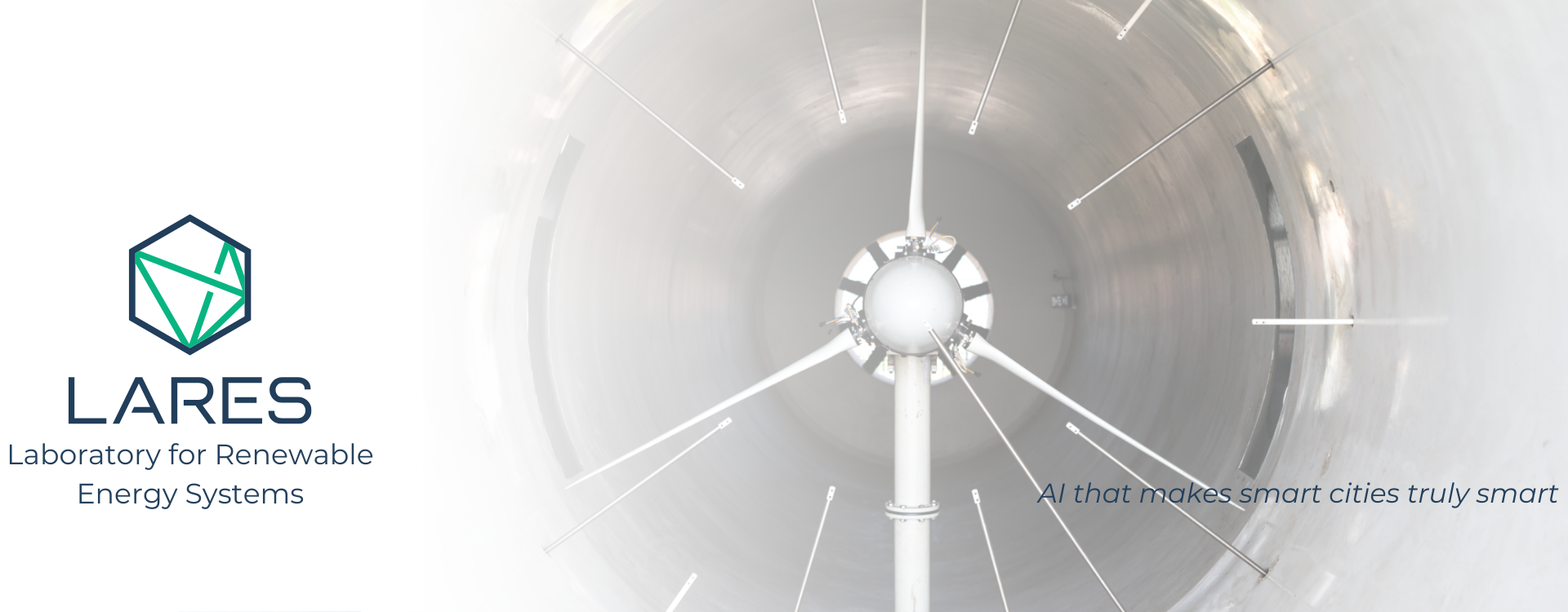
University of Zagreb Faculty of Electrical Engineering and Computing
HrvatskihrEnglishen
On March 26th, 2025, the University of Zagreb Faculty of Electrical Engineering and Computing (UNIZG-FER) and Laboratory for Renewable Energy Systems (LARES) had the honor of hosting Professor Francesco Borrelli (Fanuc Professor, UC Berkeley), a leading expert in Model Predictive Control (MPC) and its applications in energy systems and autonomous systems. His lecture attracted students, researchers, and industry professionals eager to learn from one of the foremost authorities in control engineering.
Pupils and teachers of the First Gymnasium Varaždin (PGV) from all four high school classes visited FER once again on Monday, March 24, 2025. The host at FER was Prof. Mario Vašak, Ph.D. The first lecture was held by Asst. Prof. Đula Nađ, Ph.D., in which he presented the field of maritime robotics and showed the equipment of the Laboratory for Underwater Systems and Technologies (LABUST). Then Robert Milijaš, M.Sc. and Assoc. Prof. Tamara Petrović, Ph.D. presented the Laboratory for Robotics and Intelligent Control Systems (LARICS). Robert Milijaš showed the interesting equipment with which he conducts his research, and Tamara Petrović gave a lecture on multi-robot systems. After this motivating lecture, LARICS researchers Marijana Peti, M.Sc. and Marin Maletić, M.Sc. demonstrated the flying of small drones.
The aim of the visit was to increase students' interest in science, technology, engineering and mathematics. It was co-financed through the project of the Ministry of Science, Education and Youth Innovative STEM learning for the digital future, which is carried out by PGV in cooperation with FER and also from the Interreg projects HyEfRe and Danube Indeet.
Scientific Council for Oil and Gas Economy and Power Supply and Scientific Council for Traffic of the Croatian Academy of Sciencies and Arts in collaboration with INSIGHT, LIONbat and MLBattProt projects organize Scientific Conference on New Methods and Technologies of Battery Systems for Electric Vehicles.
The conference will take a place on Friday, March 28, 2025, from 10:00 to 13:00, in CASA Library Hall, Zagreb, J.J. Strossmayer Square 14.

Fifteen students from the First Gymnasium Varaždin (PGV) from all four gymnasium classes visited FER on Wednesday, February 19, 2025, accompanied by the principal of the First Gymnasium Varaždin, Prof. Janja Banić, and four other gymnasium teachers. The main aim was to show the pupils great prospects for learning, creation, research and development in robotics and other STEM fields, and the visit was co-financed through the project of the Ministry of Science, Education and Youth named Innovative STEM Learning for a Digital Future, which is being implemented by PGV incooperation with FER. The host at FER was Prof. Dr. Mario Vašak, who began the visit with a lecture on decision-making through mathematical optimization, in which he presented the students with an approach to high-dimensional computational decision-making used in the ongoing Interreg projects HyEfRe and Danube Indeet (co-funded by the European Union), from which the visit was also co-financed, as well as in other research conducted within the Laboratory for Renewable Energy Systems (LARES) at FER. Then, Assoc. Prof. Dr. Ana Sović Kržić, together with her colleagues Leon Stjepan Uroić and Ivan Brčić, organized a workshop with Lego robots, where all participants of the visit could try their hand at assembling and programming a Lego printer in the Python environment. The PGV students were then presented with the work of the Laboratory for Mobile Robotics (LAMOR), with a special emphasis on the activities of the Horizon Europe project AIFORS - the sensors and perception of robots were discussed, and the students had the opportunity to see the attractive and diverse equipment of the laboratory. LAMOR hosts were Vlaho-Josip Štironja, Ivan Bilić, Marta Čolaković-Bencerić and Tin Mišić.
On February 18 we joined the HY MEET-UP: Fostering Hydrogen Synergies and Collaboration where we presented three European project running in LARES: HyEfRe (Interreg CENTRAL EUROPE Programme), NACHIP - North Adriatic Clean Hydrogen Investment Platform and Danube Indeet (Interreg Danube Region Programme).
The event brought together experts on the topic of hydrogen from Croatia and Slovenia. The goal of the event was to share valuable experiences from the ongoing research and activities in the field, to foster cooperation among projects and to recognize key challenges for encouraging innovation in the field of hydrogen technologies.
The event was organized by Energy Institute Hrvoje Požar, as part of the project GREET CE - Green transition in Central Europe.
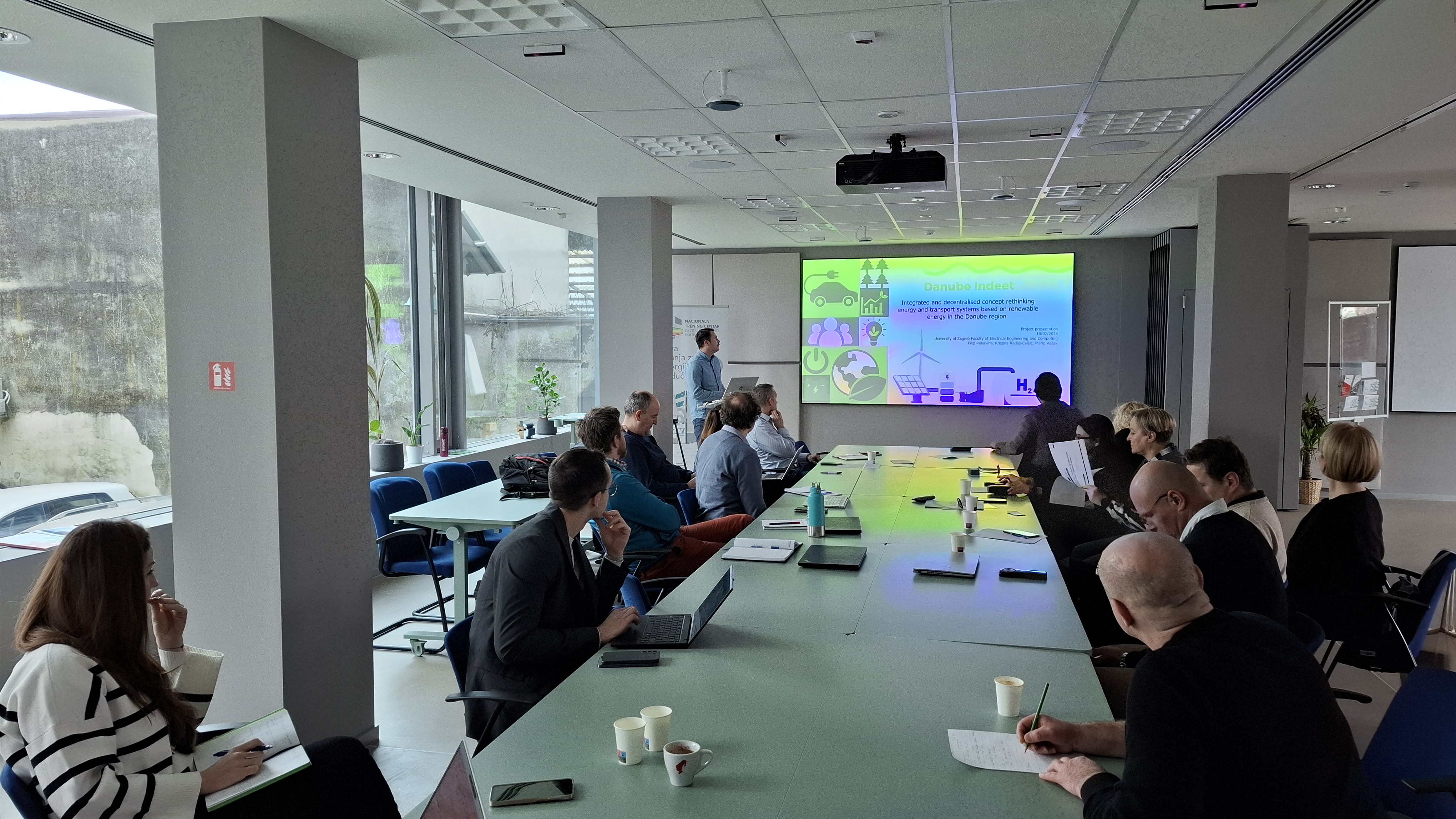
A new project acronymmed MLBattProt has recently started its execution in LARES.
Project summary
The aim of this project, between University of Zagreb Faculty of Electrical Engineering and Computing and Rimac Technology d.o.o., is to use computational geometry and machine learning functions in a coherent procedure that allows to online determine the feasible battery loading profiles. In other words, this project addresses the problem of describing the aging of a battery cell by a dynamic model with direct aging states and with only the readily available cell measurements as inputs, by an innovative combination of estimation theory and machine learning.
The main project target groups are producers and users of systems with Li-ion batteries (electric vehicles, stationary storages) whose respective battery management systems can be significantly enhanced to secure battery life extension. The project also addresses research groups and companies for prospective further joint R&D oriented towards increasing the technology readiness level reached at the project end. The project is funded by the European Union through National Recovery and Resilience Plan for Croatia.
Project implementation period: 01.04.2024. - 30.06.2026.
Total budget: 1.819.125,68 EUR
EU grant amount: 1.387.021,57 EUR
Call: Targeted scientific research (NPOO.C3.2.R3-I1.04)
Project code: NPOO.C3.2.R3-I1.04.0263
Grant beneficiary: Rimac Technology d.o.o.
Partner: University of Zagreb Faculty of Electrical Engineering and Computing
Contact person for additional information: Ninoslav Čerkez, Rimac Technology d.o.o.

The aim of the project is to improve the cooperation between research organizations (University of Zagreb Faculty of Electrical Engineering and Computing) and companies (Končar - Digital d.o.o. and Vodne usluge d.o.o.) and to improve the capacity of the companies for research, development and innovation by conducting collaborative applied research on predictive control for efficient and flexible operation of water distribution systems.
The issues that will be addressed by the project include the reduction of water losses and electricity costs in the water distribution systems compared to present methodologies.
Target groups include the applicant and partners, external collaborative research organizations and companies, as well as researchers at the international level and potential customers of Dodola solution.
The project is funded by the European Union through National Recovery and Resilience Plan for Croatia.
Project implementation period: 30.3.2024. – 29.06.2026. (27 months)
Total budget: 1.087.335,20 €
EU grant amount: €891,692.73
Call: Targeted scientific research (NPOO.C3.2.R3-I1.04)
Project code: NPOO.C3.2.R3-I1.04.0149
Grant beneficiary: KONČAR – Digital d.o.o.
Partners: University of Zagreb Faculty of Electrical Engineering and Computing and Vodne usluge d.o.o. Križevci
Contact person for additional information: Tamara Hadjina, Končar - Digital d.o.o.
Hydrogen Ecosystem of the North Adriatic region comprising Croatia, Friuli-Venezia Giulia, Autonomous Region of Italy, and Slovenia, has been expanding thanks to a newly launched initiative North Adriatic Clean Hydrogen Investment Platform (NACHIP). A grant of 7.6 million euro has been awarded to the consortium of 12 partners from the three participating countries. The initiative represents an opportunity for up to 18 SMEs who will be selected to receive a grant of up to 60.000 euro each and join the two-tier NACHIP acceleration programme through which they will be integrated in the value chains evolving around five industrial pilot projects based on hydrogen-related technologies.
A grant of 7.6 million euro has been awarded through the I3 Instrument, which aims to empower innovation with advisory and financial support, and guide projects in joint smart specialisation areas toward successful commercialisation and scale-up. The grant is financed from the European Regional Development Fund (ERDF). The Fund supports interregional portfolios of companies’ investments bringing innovation to the market at high technology readiness levels (TRL 6-9) to reshape EU interregional value chains. NACHIP focuses on validating and demonstrating clean hydrogen technologies across three key value chains: manufacturing, urban areas, and mobility. NACHIP aims to pilot solutions for generating, converting, transmitting, storing, and utilizing clean hydrogen.
Through NACHIP 12 consortium partners led by Jožef Stefan Institute will implement a replicable acceleration concept, integrate and scale advanced hydrogen-related technologies, first, by focusing on five pilot projects and, next, by involving up to 18 interested SMEs into the three target value chains. NACHIP will support their integration into the ecosystem by the means of cascade financing, predominantly destined to less developed regions of the North Adriatic Hydrogen Valley (NAHV) ecosystem. In the future, a governance model based on local hydrogen alliances will be validated and replicated to strengthen target value chains, particularly in the urban areas.
The launch of NACHIP coincides with the first yearly reunion of the partners adhering to the North Adriatic Hydrogen Valley (NAHV), the founding initiative of the evolving Hydrogen Ecosystem North Adriatic, unifying a consortium of 37 partners and supported by the grant of 25 million euro by the European Commission through the Clean Hydrogen Partnership.
NACHIP’s main goals and a wider impact
NACHIP aims to validate nascent technologies at TRL8-9, pilot dynamic clean hydrogen value chains, develop an acceleration programme for transfer of the technologies to market. These results will enable market replicability of innovations across NAHV territories, particularly benefiting less developed regions.
Specifically, main goals of NACHIP are:
NACHIP's activities will accelerate the Hydrogen Ecosystem's development in the North Adriatic territory and increase its impact. The platform's design and acceleration programme will facilitate the adoption of hydrogen-related technologies across target cross-regional value chains, fostering collaboration and joint innovation projects aligned with EU priorities.
NACHIP will be hosted on the North Adriatic Hydrogen Valley web site: www.nahv.eu.
The duration of the project is three years and upon its expiry its results and outcomes will integrate within the governance of the Special-Purpose Vehicle (NAHV SPV) to ensure the initiative’s long-term sustainability, particularly, the continuity of its actions and their replicability both within the North Adriatic area and towards other EU's regional Innovation Ecosystems.
Consortium and collaboration
The NACHIP consortium involves 12 private and public organisations spanning Slovenia, Croatia, and the Friuli Venezia Giulia Autonomous Region (FVG), Italy, led by Jožef Stefan Institute from Ljubljana. Other partners of the NACHIP consortium are: ECUBES, KSSENA, ETRA, DOK-ING, Municipality of Velenje, META Group, META Circularity, University of Zagreb Faculty of Electrical Engineering and Computing , Leonitus, Serichim and Faber. All are committed to cross-border integration of hydrogen production, distribution, consumption, and clean hydrogen exchange. Collaboration will continue through governance integrated into the NAHV SPV to ensure continuity and maximize its impact.
The pilots
The NACHIP acceleration programme is developed around five industrial pilot projects aiming to create three hydrogen-base value chains these pilots are outline here, as follows.
The municipality of Novalja on the Croatian island of Pag is the site of two innovative pilot cases, what qualifies it as a potential local hydrogen alliance. The first project led by DOK-ING, a Zagreb-based company which manufactures unmanned multi-purpose vehicles, electric vehicles and robotic systems, is based on the idea to develop a prototype of gasification plant for waste materials as a universal gasification system that can process municipal solid waste (MSW) and convert it into valuable products like synthesis gas and charred residue, appropriate for further utilisation where needed.
The second pilot based in Novalja represents an innovation in the Production of Green Hydrogen from Wave Energy. It is led by Leonitus, another Croatian firm based in Zagreb. The investment idea is to develop and deploy a new technology for the production of green hydrogen from wave energy. The technology will be based on a field of submerged devices below the sea level that deform the regular motion of waves and gradually deplete their energy.
Hydrogen use in Velenje (Slovenia) is a use case led by ECUBES and is organised as a “local hydrogen alliance”, comprising Municipality of Velenje, KSSENA, ETRA, ECUBES and JSI as key participants. It aims to present a comprehensive solution for generating and efficiently utilising renewable energy based on hydrogen in the urban areas value chain. The focus is on transforming a public building in the Municipality of Velenje (Slovenia), into a demonstrative case for sustainable energy solutions composed of a set of hydrogen technologies.
Cost-efficient cylinders for compressed hydrogen transportation is a pilot project led by Faber Industrie, S. p. a., seated in Udine and focuses on composite designs for a more cost- efficient vessel ensuring improved energy stock mobility.
The pilot investments in clean hydrogen technologies within NACHIP will be supported in investments operation and further pilots upgrade and replication by a decision support tool jointly developed in the course of the project by Institut Jožef Stefan and University of Zagreb Faculty of Electrical Engineering and Computing. The idea behind it is to provide an economically optimal joint decision on how the investment should be sized in different components as well as how it should be operated.
Co-financing and time frame
The three-year initiative will use its grant award to co-finance projects across the North Adriatic region. The total committed value of the initiative is 10.5 million euro. The total grant funding provided by NACHIP amounts to EUR 7.6 million, out of which 67.2 % is destined to finance the implementation of 5 pilot projects. The vast majority of the funding will be destined directly to the maturation of the technologies including the gaps fulfilment process supported by Cascade Financing. The predominant part of the Cascade Funding will target less developed regions of the territories, including Eastern Slovenia, Mediterranean Croatia and Central Croatia. The co-financing is well balanced among the three territories of the NAHV allocating 19.3 % of the total grant requested to FVG (and 23,8 % to Italy), 30.4 % to Croatia, and 31.7 % to Slovenia, before the portion of the grant destined to the Cascade Financing.
Contact for more information and inquiries:
Matjaž Logar, NACHIP Coordinator, matjaz.logar@ijs.si
Jurij Giacomelli, NACHIP Communication&Dissemination, jurij.giacomelli@meta-circularity.eu
ECC24 - 22nd European Control Conference took place on June 25-28, 2024 in Stockholm, Sweden. Our DECIDE project research team presented a paper:
Coalitional model predictive control of building zones temperatures by Filip Vrbanc, Vinko Lešić, Anita Banjac and Mario Vašak
The paper can be found under the project Publications tab.
LARES team was once again present at the Data Science Conference (DCS Adria) in Zagreb where Filip Rukavina and Hrvoje Novak delivered an engaging presentation on "Conformal prediction: uncertainty quantification for robust and reliable decision making."
The talk discussed the importance of considering prediction uncertainty in designing control systems and decision support frameworks, advocating for the adoption of conformal prediction as a user-friendly approach to create statistically rigorous uncertainty intervals, showcasing its applications across various domains like smart cities, renewable energy, agriculture, and meteorology within the LARES research scope
We are glad to be part of this successful conference and are looking forward to future DSC events!
As an outcome of project "SmartCityLight - Intelligent and modular platform for control and monitoring of smart city lighting" and in collaboration with project partner LED elektronika, LARES researchers were granted positive WIPO opinion with confirmed novelty, inventive step and industrial applicability for two patents:
V. Lešić, H. Shaheen, M. Gapit, M. Vašak, H. Kaluđer, "A Centralized Model Predictive Lighting Control Method and a Centralized Prediction-based Controllable Street Lighting System," patent no. EP4369866
V. Lešić, H. Shaheen, M. Gapit, M. Vašak, N. Jurković, M. Marinac, H. Kaluđer, "A Distributed Model Predictive Lighting Control Method for a Street Zone and a Distributed Prediction-based Controllable Lighting System," patent no. EP4369867
A new project in LARES "Integrated and decentralised concept rethinking energy and transport systems based on renewable energy in the Danube region" (Danube Indeet) started on 1st of January 2024.
The goal of Danube Indeet is to facilitate the expansion and efficiency of renewable energy in the Danube region by exploring and disseminating effective sector coupling opportunities such as hydrogen and vehicle-to-grid (V2G) applications. Due to environmental factors as the daily cycle of solar radiation or the irregular nature of wind speeds, we do not have control over the production of renewable electricity, making it unpredictable, thus difficult to integrate with the steadily operated baseload power plants. Energy storage and conversion alternatives and new ecosystems utilizing fluctuating electricity, such as hydrogen production and V2G, increase the efficiency and environmental benefits of renewable energy sources. The technologies are available, but new concepts are required to connect them and create synergies. While public policies support the energy transition, municipalities and cities often need support with effective implementation. Danube Indeet will contribute to the resolution of these challenges by conducting legal and technical analyses, creating complex models based on data collected by partners, exploring economic and societal opportunities, drivers and barriers and ultimately taking up these results by proposing evidence-based policy recommendations and a strategical framework for the Danube Region.
During the project, local infrastructure frameworks will be analysed in each participating region and already existing approaches for renewable energy integration will be examined. The data feeds in to a computation model based on mathematical optimisation to obtain ideal green infrastructure setup in terms of operation and economics. The model will be tested, validated and refined in six pilot regions as well as against theoretical scenarios. The results combined with the conclusion of the analysis of the legal framework provide ample basis for policy recommendations and the strategy for integrated energy and transport systems in the Danube region. To ensure embedding of project outcomes, further investigations will be conducted into the acceptance factors and levels behind V2G, hydrogen applications and other concepts touched upon by the project. These results will be disseminated, discussed and further taken up in the frame of policy cooperation and networking activities, thus contributing to a greener, more energy efficient Danube Region.
The basic project info:
Project title: Integrated and decentralised concept rethinking energy and transport systems based on renewable energy in the Danube region
Project acronym: Danube Indeet
Project duration: 2024.01.01-2026.06.30
Project budget: 2,664,080.00 €; Interreg funding: 2,131,264.00 €
Project partnership:
Associated partners:
The project is funded by the European Regional Development Fund through the Danube Region Programme.
On January 30 and 31, the newly EU-funded project, RESURGENCE, officially launched its activities in A Coruña, Spain. With a comprehensive approach that integrates efficient technologies and digital solutions for water circularity, energy, and feedstock recovery for EU process industries, RESURGENCE aims to make significant contributions to EU climate neutrality, circularity, and competitiveness.
The project will focus on four case studies spread over Portugal, Turkey, Poland, and Spain, encompassing the pulp & paper, chemical, and steel sectors, and exploring synergies between urban water treatment and industrial operations.
At the core of RESURGENCE are innovative solutions for water treatment. These solutions will not only enhance water quality but also facilitate the recovery of energy and valuable feedstocks. In addition to technological advancements, RESURGENCE will develop and apply digital tools such as energy, water, and risk management models, physical and software sensors for data acquisition, digital twins, and decision-support tools. These tools will optimize water treatment technology setup and day-to-day operations.
The four-year project is funded by Horizon Europe and coordinated by CETIM. With a consortium of 20 partners from 11 countries, including international cooperation with Turkey and Pakistan, RESURGENCE aims to create seeds for future circularity hubs, working towards a significant and lasting impact.
The coordinator of the project, Rebeca Varela, European Project Office Manager at CETIM, expressed her enthusiasm for the project's launch, stating: “ At CETIM we are thrilled to start this adventure together with such a great consortium, representing the top tier EU research and industrial partners and the most innovative consultants. Helping industries in their transition towards a green digital future is part of our DNA at CETIM, and RESURGENCE is a great opportunity to continue to contribute to this goal at the EU level”.
RESURGENCE technical leader, Xuefei Yang, Researcher from the ECO BIO technologies Area at CETIM, believes that: “I am very excited to launch this comprehensive project, in partnership with our EU and international partners. By employing innovative water treatment technologies, optimising process management, and leveraging intelligent data analysis, we are committed to achieve a closed-loop system for industrial wastewater treatment.”
The project is already active on social media. To stay updated on the project, follow RESURGENCE on LinkedIn and X.
Our LARES member, Assoc. Prof. Vinko Lesic, PhD, was a co-organizer of AI Doctorate Symposium, a competition on research commercialization for PhD students and recent graduates, which took place at GITEX Global summit in Dubai, October 16-20, 2023.
The competition was organized by IEEE Region 8 Entrepreneurship together with IEEE Region 8, R8 Member Activities and R8 Technical Activities, in organization with GITEX Global - DevSlam, and attracted current or recent PhD students to present their published research papers related to their theses in the topic of AI. Out of 47 participants, 5 were selected for the finals in Dubai.
Judging panel included Dr. Simon See, Global Head Nvidia AI Technology Centre, Dr. Wathiq Mansoor, Dean of College of Engineering & IT at University of Dubai, Omar Hatamleh, Chief Advisor, Artificial Intelligence & Innovation - NASA, Christopher Abraham, CEO & Head - Dubai Campus, S P Jain School of Global Management, and Vinko Lesic, IEEE R8 Vice Chair for Member Activities and LARES member. Three authors were awarded on stage, first prize of 2,000 USD for Paolo Testolina (Italy), second prize of 1,000 USD for Sofia Bourhim (Spain) and third prize of 700 USD for Abir Abid (Tunisia).
Global DevSlam is inspired by GITEX Global, the largest tech show in the world, which gathers over 170,000 attendees, 5000 exhibitors and 1400 speakers from 176 countries. The 43rd edition of GITEX Global took place in Dubai World Trade Center, bringing together major players in academia, government, and industry. The event consisted of eight co-located shows on coding and software development, AI, fintech, future urbanism, blockchain and more.
Photos are available in detailed news content.
On December 22, 2023, LARES researcher Mateja Car successfully defended her doctoral dissertation and received a PhD degree in Electrical Engineering. Mateja's thesis, entitled "Model predictive control of battery systems in a microgrid", elaborates model predictive control of heterogeneous battery storage systems in a microgrid by taking into account the chemical processes inside a battery which are reflected in variable battery efficiency and consequently, battery longevity. Our congratulations to Doctor Mateja Car!
LARES team attended IEEE CDC 2023 – 62nd IEEE Conference on Decision and Control that took place on December 13-15, 2023, in Singapore.
Assoc. Prof. Vinko Lešić, PhD, presented SmartCityLight project results in the paper "Street Lighting Optimal Dimming with Model Predictive Control" by Husam I. Shaheen, Marina Gapit, Ana Martinović, Vinko Lešić
TELFOR 2023 – 31st Telecommunications Forum took place in Belgrade, Serbia during November 21-22, 2023.
Ana Martinović, MSc, presented SmartCityLight project results in the paper "Embedded Implementation of Optimal City Lighting Lamp Control" by Ana Martinović, Husam I. Shaheen, Marina Gapit, Nikolina Jurković, Denis Kereži, Mario Vašak and Vinko Lešić.
Marina Gapit, MSc, presented SmartCityLight project results in the paper "Intelligent System for Monitoring and Control of Street Lighting" by Marina Gapit, Nikolina Jurković, Husam I. Shaheen, Ana Martinović, Denis Kereži, Mario Vašak, Vinko Lešić.
Mihael Jakšić, MSc, presented DECIDE project results in the paper "Data-Driven Model Identification of Building Thermal Dynamics" by Mihael Jakšić and Vinko Lešić.
PowerAfrica 2023 – IEEE PowerAfrica Conference, organized by IEEE Power and Energy Society and IEEE Industry Applications Society with strong involvement of IEEE Smart Village, took place in Marrakesh, Morocco from November 6-10, 2023.
Marina Gapit, MSc, presented SmartCityLight project results in the paper: "Ray Tracing Model of LED Street Lighting for Energy Efficiency Simulation" by Marina Gapit, Husam I. Shaheen, Sruthy Gireesan and Vinko Lešić. Assoc. Prof. Vinko Lešić, PhD participated as a speaker in the panel "Young Professionals Panel on Climate Change".
A new project in LARES Industrial Water Circularity: Reuse, Resource Recovery and Energy Efficiency for Greener Digitised EU Processes – RESURGENCE started on 1st December 2023.
It addresses industrial circular water systems in a wide perspective which embraces efficient technologies for water circularity, energy and feedstock recovery, with the aim of contribute to EU climate neutrality, circularity, and competitiveness. RESURGENCE will work in 4 case studies that include 3 industrial sectors – Pulp&Paper, Chemical and Steel – as well as a 4th case to explore the synergies between urban water treatment and industries. Innovative solutions will be tested for water treatment – membranes, electrochemical technologies, adsorbents, advanced oxidation processes and hybrid biological systems – exploring also the recovery of energy (heat, electricity, biogas, H2) and feedstocks ( bioactive fenols, biopolymers, cellulose, lignin, latex, acrylic polymers, phosphate & nitrogen, biochar, MOFs and metals, including Critical Raw Materials). Digital tools will be also developed and applied, including models for energy, water and risk management, physical and software sensors for data acquisition, digital twins, and decision-support tools enabling optimal water treatment technology set-up and day-to-day operation with seized flexibility opportunities on smart grids. The project will be guided by a comprehensive sustainability and economic assessment to support by evidence the gains of these technologies, togheter with H&S analysis. Local effects multiplication of case studies is pursued by promoting seeds of future hubs for circularity. A comprehensive consortium of 20 partners from 11 countries covering the whole geographical scope of the EU, and with international cooperation with Turkey and Pakistan will work together to achieve significant outcomes and produce long-term impact.
During the 29th and 30th of November, the REWAISE consortium held the project’s 2nd review meeting in Denia (Spain). The project officer, Cristina Paducea, alongside two external reviewers, evaluated the project’s progress of the last 18 months.
In the Continental hub a combined urine diverting and dehydrating unit to recover nitrogen were demonstrated at VA SYDs head office in Malmoe (Sweden). In addition, the Swedish Living Lab installed the first large-scale demo of rain and stormwater filtration and reuse based on the design and on the prototypes of UF modules. In this unique demonstration, stormwater from the utility's rainwater storage will be used in households, e.g. for washing machines and toilet flushing.
In the Mediterranean hub, in Almería (Spain), new biomimetic Membranes were tested in several water treatment applications to result in high-quality drinking water with around 15% lower pressure than other membranes, and the first results of materials recovery from desalination brines are available. Regarding the Atlantic hub, new solutions such as the Anaerobic Membrane Bioreactor in Vigo or the Organics Thermal Ammonia Recovery Unit are being commissioned, to analyse the benefits of each technology in resource recovery. Furthermore, new digital tools have been deployed to monitor water quality in reservoirs and optimize networks and treatment plants.
All these developments are being closely monitored with Life Cycle Assessment (LCA), whose Key Performance Indicators (KPIs) have been defined to measure the efficiency of water recovery, energy balance or carbon footprint, and quantify the improvements in sustainability and affordability.
In addition, market studies for the solutions developed within the project have been completed and the go-to-market strategy is being implemented with the technology providers. All of the scientific and project-related results have been widely communicated and disseminated through different events, channels and tailor-made activities, with the project website www.rewaise.eu getting more than 1000 hits per month.
This active communication promotes the engagement of different stakeholders, based on a clear methodology and guidelines to create Living Labs on a larger scale and favour open innovation. Swift progress has been achieved in the Midlands and Skane Living setting up competency groups for wastewater management and reuse. Many capacity building activities have been carried out, fully tailored to the identified needs in the previous period.
After a critical analysis of progress by the Project Officer and the external reviewers, a visit to the desalination plant located in Denia (Spain) was facilitated by Aqualia, the project coordinator, to show the many test facilities for membranes, pre-treatment or brine recovery in this research platform.
More information
Frank Rogalla (coordination): frogalla@fcc.es
Antonio Menéndez (coordination): antonio.menendez@fcc.es
David Pedrero (coordination): david.pedrero@inncome.es
Iciar Serrano (communication and dissemination): iciar.serrano@inncome.es
LARES research team published an article " Simple and Accurate Model of Thermal Storage with Phase Change Material Tailored for Model Predictive Control " - Vrbanc, Filip; Vašak, Mario; Lešić, Vinko, in Energies, an open access scientific journal. The paper presents a novel modelling approach for thermal heat storage with phase-change material based on mixed integer linear program.
You can download the article freely on the journal web.
IFAC 2023 – The 22nd World Congress of the International Federation of Automatic Control took place in Yokohama, Japan from 9th - 14th July 2023.
Assoc. Prof. Vinko Lešić, PhD presented SmartCityLight project results in the paper: “Model Predictive Control of Street Lighting based on Spatial Points of Interest” by Husam I. Shaheen, Marina Gapit, Sruthy Gireesan and Vinko Lešić.
Ana Martinović, MSc and Marina Gapit, MSc, both researchers on the SCL project, participated on "Distributed Control, Optimization and Learning for Network Systems" workshop where various optimization algorithms, and optimization methods used for performance improvement of control systems have been researched and analysed.
Ana Martinović, MSc and Marina Gapit, MSc, researchers on the SCL project participated in "Learning-Based Predictive Control" course held at ETH Zürich, Switzerland from 26th - 30th June, 2023. The course is a part of the "International Graduate School on Control" organized by European Embedded Control Institute (EECI).
The course was held by Prof. Melanie N. Zeilinger from the ETH Zürich and Prof. Lorenzo Fagiano from the Politecnico di Milano, Italy. After a brief review of fundamentals of MPC, the course presented an overview of existing learning-based MPC methods, followed by a deep-dive into theory and applications of selected techniques for different problem settings.
SCL team participated in the 21st European Control Conference (ECC2023) held in Bucharest, Romania. Assoc. Prof. Vinko Lešić, PhD presented the paper: “Distributed Street lighting Model Predictive Control based on Spatial Points of Interest” by Husam Shaheen, Vinko Lešić, Marina Gapit and Sruthy Gireesan.
The paper is available at IEEEXplore.
In addition, 2 young researchers on the project, Ana Martinović, MSc and Marina Gapit, MSc participated in "Concurrent Learning and Optimization for Nonconvex Constrained Problems – A Set Membership approach" workshop held by prof. Lorenzo Fagiano from the Politecnico di Milano, Italy.
Our LARES research team published two articles in IEEE Transactions on Intelligent Transportation Systems, a prestigious IEEE scientific journal.
The first article "Data-Driven Modeling of Urban Traffic Travel Times for Short-and Long-Term Forecasting" - H. Novak, F. Bronić, A. Kolak, Vinko Lešić, compares data-driven statistical and machine learning approaches for urban traffic travel times forecasting which is of critical importance for efficient supply chain logistics and accurate navigation services. A detailed analysis of the available historical data is performed, including historical floating car data for a one-year period. The ariticle can be found here.
The second article "Aggregated Representation of Electric Vehicles Population on Charging Points for Demand Response Scheduling" - M. Kovačević and M. Vašak, proposes a method to represent a population of electric vehicles that on the one hand enables prediction via machine learning and on the other it enables an accurate optimization of the charging schedule and demand response ability. The article is available for download through open access on this link.
On June 29 and June 30, 2023, we held an ADRION TRAINEE Open days in the Great Hall of University of Zagreb - Study programme of Energy Efficiency and Renewable Energy Sources in Šibenik. In it we presented to the students with multidisciplinary competencies that they will be able to develop by attending this joint graduate study. We also invited them to help us design the best possible study program with their ideas and suggestion. We also asked them to fill out the questionnaire that will help us better understand their needs and tailor the master concept accordingly.
We thank the Study programme of Energy Efficiency and Renewable Energy Sources for encouraging all those interested in participation of the Open days.
You can find the presentation from the event here and here and here.
Prof. Mario Vašak was a speaker at the Solar Energy 2023, Seminar on Possibilities of Renewable Energy Sources Implementation. He participated in the 2nd Thematic Section: PROJECTS AND ACHIEVEMENTS where he presented a new project in LARES “ADRION TRANSNATIONAL MASTER IN RENEWABLE ENERGY” (ADRION TRAINEE), supported by the Interreg ADRION Programme, funded under the European Regional Development Fund (ERDF) and IPA II fund. Prof. Vašak invited the present stakeholders to get involved in defining the master concept so that it meets the current and upcoming needs of the sector as well as possible.
The seminar was held in Zagreb, The Antunović Congress Centre, on 18 May 2023.
LARES team presented at Data Science Conference (DCS Adria) in Zagreb!
Mihael Jakšić, MSc led a tutorial on "Multi-step forecasting strategies of PV power plant production," focusing on photovoltaic cells located at the FER-UNIZG skyscraper. The tutorial delved into the research background, data analysis, and the development of a basic XGBoost model. Attendees gained valuable insights into the intricacies of multi-step forecasting and witnessed a live demonstration of producing forecasts for PV power plant production.
Hrvoje Novak, PhD and Slaven Begović, PhD delivered an engaging presentation on "Nowcasting: AI-based short-term weather forecasts for decision-making." They showcased how machine learning algorithms improve weather forecasts for specific applications, aiding in climate adaptation and decision-making. LARES' expertise received widespread recognition, offering promising solutions for tackling climate change challenges.
We are glad to be part of this grand and successful conference, and we hope to see you again next year in Belgrade!
LARES research team published an article: “Implementation of model predictive indoor climate control for hierarchical building energy management” - Banjac, Anita; Novak, Hrvoje; Vašak, Mario. The paper addresses the design and implementation of a model predictive control framework for temperature control in buildings zones via direct control of their thermal energy inputs.
The paper is published in “Control Engineering Practice”, A journal of IFAC, the International Federation of Automatic Control, that strives to meet the needs of industrial practitioners and industrially related academics and researchers.
On May 11th 2023 a group of students from University of Tuzla, Faculty of Electrical Engineering, visited our laboratory. During this visit, students learned about mathematical optimization in dynamic technical systems, such as renewable energy systems, optimizing energy consumption in buildings and combining buildings within different infrastructures. We presented research activities that we are conducting through various projects that the laboratory has implemented or is still implementing. They learned about the tool for optimal sizing of power-to-gas hubs developed through the DanuP2Gas project. They also learned about European scientific project REWAISE, in wich we deal with the problem of water supply and how it can be solved using artificial intelligence.
LARES team members Naomi Munitić M.Sc., Marina Gapit M.Sc. and Ivan Grabić M.Sc., presented on The International Conference on Industrial Technology 2023 held in Orlando, Florida, USA.
The three papers presented are:
"Utilization of ABC/XYZ analysis in retail sales forecasting using multivariate LSTM method" by Naomi Munitić, Mia Baržić, Luka Jelić, Vinko Lešić
"Adaptable Simulation Environment for LED Streetlight Dimming Control System" by Marina Gapit, Husam Shaheen, Vinko Lešić
"Structural loads reduction in wind turbines via set-based control" by Ivan Grabić and Mario Vašak
LARES member Assoc. Prof. Vinko Lešić, PhD, gave lecture about renewable energy systems as part of the project "Gifted and Diligent" of Elementary School Vukovina, aiming at invited lectures and expert guests to motivate young generations for various STEM areas, present perspectives for future education and selection of professions. The lecture about current status and future trends in renewable energy, in global, European and Croatian perspective was given to pupils of classes 6c and 6d as part of the course of Technical Education and with the invitation of project leader, professor Ljiljana Lozančić.
Full article available at school website. Few photos are available in detailed news content.
AgroSPARC project has been featured in the daily newspaper Jutarnji List. The paper includes interviews of the core AgroSPARC crew, including LARES and LARICS members from FER and ICENT and team members from the Faculty of Agriculture.
If you are interested on what our researchers had to say about the project and the bigger picture of AI in sustainable agriculture, you can read the full paper on the Jutarnji portal, or download the full PDF version here.
In the special, 30th edition of the professional journal EGE (energy, economy, ecology and ethics) in the "new technologies" category, an article was published about the successful collaboration between FER and Led Elektronika d.o.o. on the SmartCityLight project.
The article describes the current state of public lighting and emphasizes the goals of the SCL project - research and algorithmic and circuit development of a distributed and autonomous control-telemetry platform that, by predictive adaptation to future profiles of microlocation conditions (weather conditions, density of vehicle and pedestrian traffic, etc.), achieves significant energy savings, lowers investment and maintenance costs while simultaneously increasing safety conditions and visual comfort for users.
The Ambassador of the State of Israel to the Republic of Croatia, H.E. Gary Koren, visited FER on March 15th, 2023. The occasion of the meeting was to further strengthen the bilateral relations between the Faculty and the State of Israel in the scientific research and educational field.
After the meeting with the FER Management, Ambassador Koren visited our Laboratory for Renewable Energy Systems - LARES where he was hosted by our team members, Dorijan Leko, Antonio Karneluti and Hrvoje Novak PhD, who showed him what we are working on and what our current projects are.
In Europe, it currently takes an average of 171 km for food to travel from farm to kitchen, and global food logistics account for a staggering 26% of global carbon dioxide emissions. Despite this, large quantities of food are wasted daily. The FoodMAPP project seeks to address these challenges in line with the European Strategic Plan for reducing the impact of climate change. This plan involves strong and influential changes in the food industry, including reducing food waste and changing the fragile and complex delivery chains of industrial producers to create a new, fair, and sustainable food industry.
The FoodMAPP project aims to optimize food supply chains by reducing waste and promoting local food production. It is funded by the Horizon Europe Marie Sklodowska-Curie program for researcher exchange, together with additional funding from the United Kingdom Research and Innovation (UKRI) program for research and innovation. The project aims to support the transformation of food delivery chains by enabling and promoting transparent local supply from local production, including family farmers and processors, directly to customers. Over four years, extensive market intelligence will be gathered from all stakeholders involved to understand market needs and preferences, with the goal of achieving a transparent localized food supply chain. This knowledge will be applied in the form of precise information to all stakeholders, laying the foundation for a new phase of a dynamic geoinformation search platform for local producers to supply and sell directly to consumers.
The project will support an interdisciplinary consortium of European partners, which includes FER as the Croatian representative, as well as technical, business, food, and social academic partners from England, Spain, Belgium, and Hungary, and industrial partners from France and Austria. The project coordinator is Assoc. Prof. Dr. Vinko Lešić from the Laboratory for Renewable Energy Systems - LARES at the University of Zagreb Faculty of Electrical Engineering and Computing, and partners include Ghent University (Belgium), Eötvös Loránd University (Hungary), CREDA (Center for Research and Development of Agri-food, Spain), and Bournemouth University (United Kingdom). Food industry partners are the Institute Paul Bocuse (France) and Ronge & Partner (Austria).
The project began on March 1, 2023, and a kick-off meeting was held on March 6-7 at FER, which hosted world-renowned academic and industrial representatives.
A new project in LARES, ADRION TRANSNATIONAL MASTER IN RENEWABLE ENERGY “ADRION TRAINEE” (INTERREG V-B Adriatic-Ionian ADRION Programme 2014-2020) started its activities on 2nd January 2023. The project is supported by the Interreg ADRION Programme, funded under the European Regional Development Fund (ERDF) and IPA II fund.
Project’s overall objectives is to raise multidisciplinary competencies and skills on the topic of Renewable Energy, to lay down the basis for enhanced cooperation between EU and IPA countries, while encouraging the effective use of future EU funds for research and innovation in Renewable Energy.
The partnership includes 11 organizations and 6 countries:
The total Budget for the project is 795.000 EUR.
We are happy to share with you the DanuP-2-Gas Optimization Tool presetntation. It explains the usage of the a tool for optimal sizing of power-to-gas hubs built in the DanuP2Gas project in which FER with LARES participated as a project partner.
Optimization result is not only the specification of the obtained P2G hub but also includes time diagrams of consumed and produced energy and material, i.e. the tool also gives optimized scheduling of the P2G hub operation.
To learn more about the tool, its full scheme, how to use it, and its mathematical background, please read its User Manual, see the video or contact the developers: filip.rukavina@fer.hr; antonio.karneluti@fer.hr; mario.vasak@fer.hr
On January 16th 2023, web portal egradnja published an interview with head of our laboratory prof. dr. sc. Mario Vašak who presented LARES activities and research results in predictive control of buildings. The interview in Croatian can be reached here, while the interview in English can be reached here.
Our LARES member Assoc. Prof. Vinko Lešić, PhD, has been elected as IEEE Region 8 Member Activities Vice Chair for 2023-24 by the votes of representatives from nearly 50 countries of Europe, Middle East and Africa. Elections were held during 119th IEEE Region 8 Committee Meeting held 15-16 October 2022 in Cairo, Egypt. Vinko will supervise several focused subcommittees tailoring and delivering programs and opportunities for more than 80,000 engineers and scientists.
We are proud that head of our laboratory, Prof. Mario Vašak received the 2022 Fran Bošnjaković award from the University of Zagreb for his exceptional scientific achievements, promotion of scientific discipline and profession, transfer of knowledge, and for education of young professionals in the area of technical sciences at the University of Zagreb. Congratulations Mario!
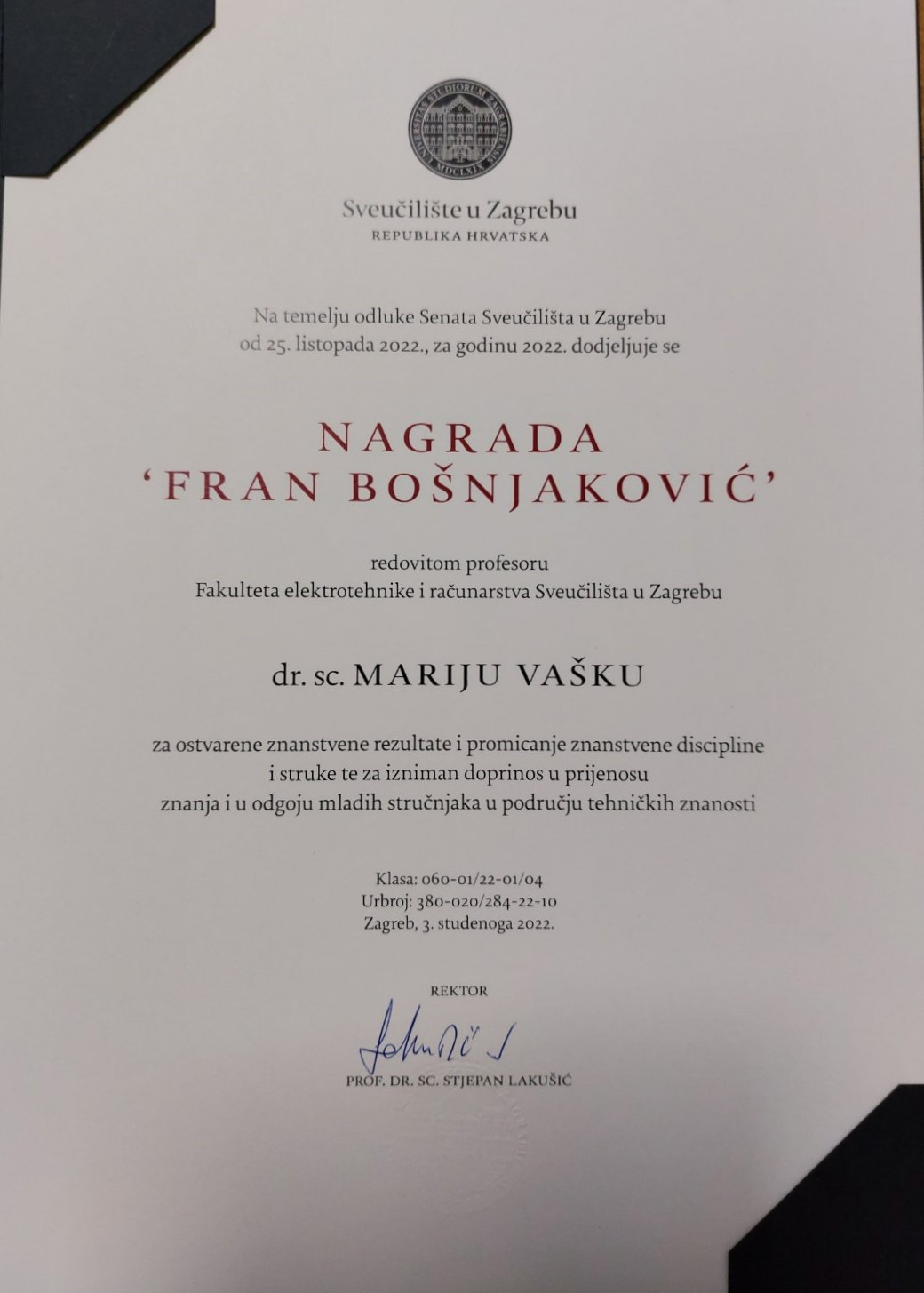
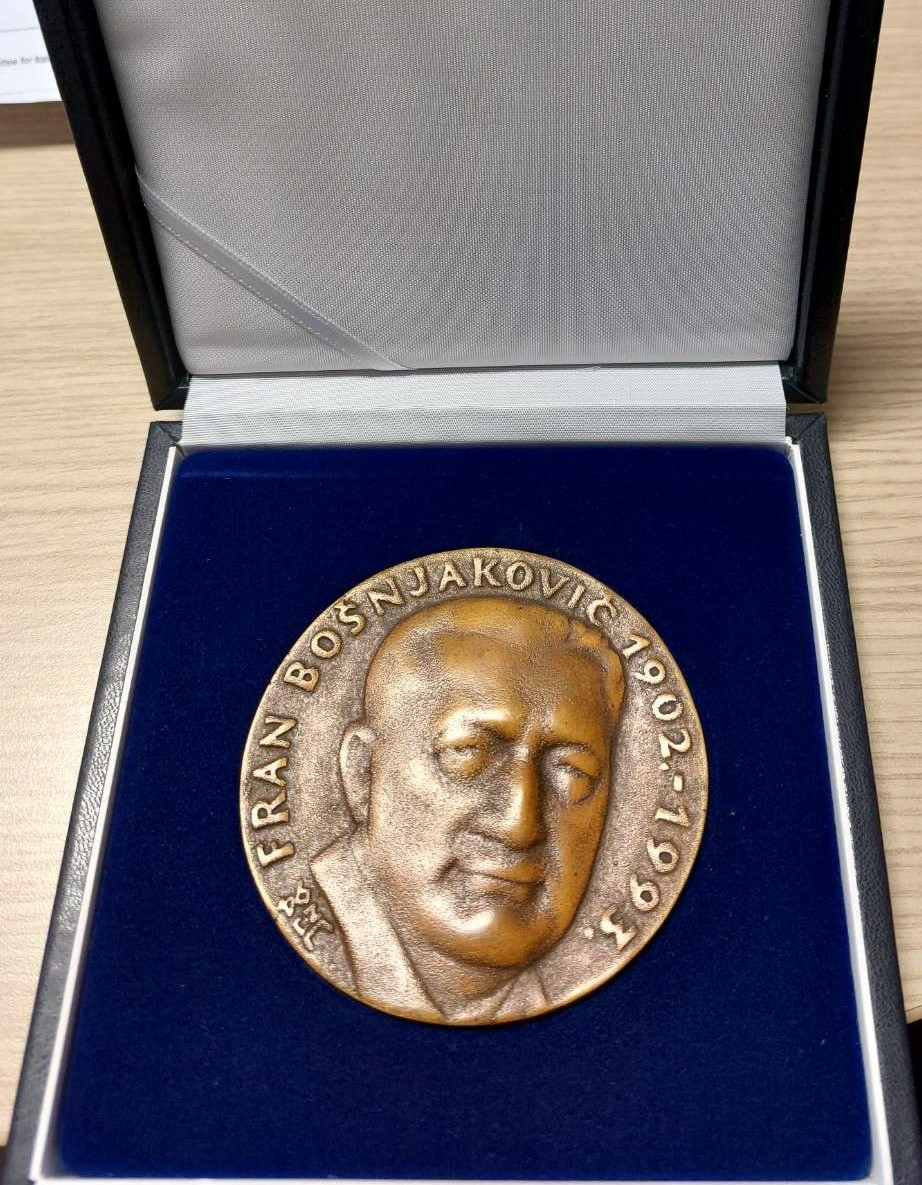
The final workshop of the DanuP-2-Gas project entitled: "Possibilities and potentials of using power-to-gas technology" was held in the hall of the Croatian Chamber of Commerce on 24th of November 2022. Project results and developed tools intended for different stakeholders in the Danube region were presented at the workshop by the Croatian project partners.
The event was enriched by interesting guests. Mr. Vjekoslav Jukić from Ministry of Economy and Sustainable Development gave a presentation on the Croatian legislative framework related to hydrogen and potential financial tools and reported on the progress of the North Adriatic Hydrogen Valley established.
Danica Maljković, PhD, (Indeloop d.o.o.), Tonći Panza, M.Sc. (Adria Wind Power d.o.o), Krešimir Ižakovic, M.Sc. (Dilj d.o.o.), Dinko Đurdevic, MBA (Hydrogen Europe) and Ante Sjauš, M.Ll (Zadar County) participated in an interesting panel discussion „Croatia's potential in hydrogen value chains“ moderated by Ivona Hulenić, M.Sc. (EIHP).
Within the DanuP2Gas project, in which FER with LARES participates as a project partner, two new tools for different stakeholders in the Danube region were developed.
The aim of the tools is to stimulate interest in possible investment projects in power-to-gas hubs, as well as to reveal potential obstacles in their realization.
The transnational atlas of renewable energy is an online tool in the form of a web geo-information system (GIS), shows various existing infrastructure elements for the planning of P2G hubs in Germany, the Czech Republic, Slovakia, Austria, Slovenia, Hungary, Croatia, Serbia, Romania and Bulgaria.
The DanuP-2-Gas Optimization Tool is an off-line tool that provides an economically optimal unified proposal for structuring the conversion and storage processes in the hub and for their year-round operation profiles, for the selected point and infrastructure elements in the transnational atlas. Subsequent manual correction of all data downloaded from the atlas is possible, and it is also possible to enter data completely manually without using the atlas. Along with the optimal result, it provides an accompanying economic and technical analysis: the time and amount of consumption of input resources, the products of P2G hubs that are handed over to consumption chains, and the associated emissions. The Optimization Tool can be downloaded for free and the Atlas reached at the Danube Energy Platform.
The DanuP-2-Gas Optimization Tool was developed by LARES members Filip Rukavina M.Sc., Antonio Karneluti M.Sc., and Marijo Šundrica PhD, mentored by DanuP-2-Gas local project leader and LARES head Prof. Mario Vašak.
The 103rd celebration of the Faculty Day of Electrical Engineering and Computing was held on Friday, November 25, 2022. The ceremony included a speech by the dean and other guests, with recognition and awards given to the best students.
Also, as a part of the FER Faculty Day, a poster exhibition was set up presenting the projects implemented at FER. One of the projects presented was SmartCityLight project, one of the active LARES projects.
The poster was introduced by Marina Gapit, mag.ing., a young researcher from the SCL team.
LARES team members, assoc. prof. Vinko Lešić and Hrvoje Novak PhD, presented at the Data Science Conference Europe 2022, in Belgrade.
Our team demonstrated how can machine learning modelling be combined with advanced model predictive control strategies to improve the way our cities operate. Results from buildings, water distribution systems, urban transport, city lighting and many more were showcased and joined together under a common term of smart cities.
Interesting lectures, enticing discussions and an overall great conference atmosphere summarize the impressions.
On Saturday, November 5, 2022, elementary school students from the 5th to the 8th grade, attending the RADDAR mathematics and programming program visited our laboratory.
During this visit, students learned about the problem of water supply and how it can be solved using artificial intelligence. LARES researchers who are working on this issue within the European scientific project REWAISE prepared a simulation to illustrate a small segment of the water supply system with a water tank for which they defined water consumption by individual end consumers.
Through this simulation, they showed that with the use of knowledge in mathematics and physics, as well as programming and automation, the computer can determine the water pumping profile in the water reservoir, which can achieve significant water and electricity savings.
On October 21, 2022 the Ministry of Regional Development and EU Funds(MRRFEU) organized a study visit to the Croatian Parliament and to institutions which implement projects financed from European Union funds, for a group of about 80 students accompanied by teachers and principals of schools from Buzet, Dubrovnik, Duga Resa and Zadar. Their visit is a part of the activities of the project “In the School of Open Cohesion, ASOC”. We are proud that they chose our laboratory as an example of successfully implemented Interreg Transnational projects. As part of their visit to our laboratory, we prepared a presentation showing the results achieved by the implementation of the projects 3Smart and DanuP2Gas, financed through Danube Transnational Programme.
LARES research team published an article " Predictive control based assessment of building demand flexibility in fixed time windows " - Vašak, Mario; Banjac, Anita; Hure, Nikola; Novak, Hrvoje; Kovačević, Marko in Applied energy, a prestigious scientific journal. The paper introduces a simple strategy for modular building energy management with explicit demand response based on a three-level hierarchical model predictive control that engages the entire building in optimal operation and financially viable flexibility provision. It can be freely downloaded here until 30 December 2022.
During last week, our AI researchers held another edition of our artificial intelligence course, conveniently named the AI Bootcamp. This time, we were visiting our long-term partner Televend, where we introduced the topics of AI/ML to their product management team.
As always, it was a pleasure and we are looking forward to spreading the AI expertise to our participants in the future!
Our LARES member, Hrvoje Novak, contributed to the Zaka research week by showcasing LARES research work in the transformation of urban areas towards smart cities with the support of AI algorithms. During the talk, research and application of advanced mathematical control algorithms supported by machine learning modelling were presented and followed by an interesting discussion with the engaging audience.
Zaka is a remote, community-driven AI company designed to be an inclusive guide for organizations and individuals into AI and is on a journey to democratize AI in the Middle East and North Africa region through sharing knowledge, building solutions, and connecting people.
Thank you Zaka for inviting us and providing this opportunity to share our expertise!
A part of LARES research team alongside other researchers from FER have attended the scientific training workshop called "ELO-X Fall School and Workshop" which took place in Freiburg, Germany during October 3-11,2022.
Theoretical background and hands-on practical knowledge in the field of Model Predictive Control (MPC) and Reinforcement Learning (RL) was acquired. An intensive course was taught by Prof. Joschka Boedecker and Prof. Moritz Diehl both from the University of Freiburg.
In addition, the soft skill workshop "How to plan and develop a research project" by Dr. Frank Krüger and Christian Jäger both from University of Freiburg was held.
The workshop was followed by techical seminars guest lectures given by Prof. Dr. Toshiyuki Ohtsuka (Kyoto University - Japan), Dr. Rien Quirynen (MERL - Boston US), Dr. Yuval Tassa (Google Deepmind - UK), Prof. Dr. Davide Scaramuzza (University of Zürich, Switzerland), Dr. Stefan Gerig (Bosch - Germany), Prof. Dr. Melanie Zeilinger (ETHZ, Switzerland), Prof. Dr. Silvia Mastellone (FHNW - Switzerland) and others.
Panel session "The Tipping Point Of Change: Accelerating Towards Climate Change & Sustainability" at Techne Summit Dubrovnik 2022 was moderated by LARES member Asst. Prof. Vinko Lešić, PhD, who hosted Wlodek Laskowski, PhD from Mobility Ventures and Karim Haggar, PhD from Kepri Projects to talk about Medditeranean opportunities in mitigating climate changes with focus on technical challenges in the context of policies and funding. Guests discussed business opportunities in technology development stemming from green awareness and heritage-long thinking where government funding, impact funds and family investment offices open new possibilities.
LARES head Prof. Mario Vasak has presented the work of LARES in smart control of legacy heating systems which suffer from high inefficiency and comfort issues when classical control schemes are applied to them. The work Optimal day-ahead operation scheduling of a one-pipe heating system is published on the 8th International Conference on Control, Decision and Information Technology held in Istanbul 17-20 May 2022. The work falls within the efforts of enabling smartness and demand response in buildings and households pursued in the project Development of a System for Control of Electrical Energy Consumption in Households (SUPEER, contract no. KK.01.2.1.02.0063), supported by the European Union from the European Union Regional Development Fund via Operational Programme Competitiveness and Cohesion 2014-2020 for Croatia. The presentation can be found here.
On Friday, April 22, 2022, FER was visited by a group of 3rd-year undergraduate students of Applied / Business Computing at the University of Dubrovnik.
The guests from Dubrovnik first visited the Laboratory for Renewable Energy Systems (LARES), which was presented by doc. dr. sc. Vinko Lešić. Researcher Marko Ratković showed them how plant growing chambers work and how they will be applied in the AgroSparc project. They then went to other faculty laboratories and got to know their projects.
As part of the study trip on March 18, 2022, a group of undergraduate students of Industrial Management and Logistics from the Université Paris-Saclay, accompanied by their professors, visited FER.
During the one-week visit to Croatia and Slovenia, the students' goal was to get to know the local business culture and companies associated with French companies or investors. Consequently, they visited TPV Group, Renault, Zagrebačka pivovara, Holcim Croatia, DPD, INETEC and Končar. They concluded their trip at FER, where we introduced them to the research we are conducting as part of the Advanced Laboratory of Power Systems (SG Lab), the Laboratory for Renewable Energy Systems (LARES) and the Laboratory for Underwater Systems and Technologies (LABUST).
At the end of the gathering, the guests were greeted by members of the student association EESTEC LC Zagreb, who presented the work of the association in French and thus pleasantly surprised our guests from Paris.
Organized together with IEEE Croatia Section and its Control Systems Society Chapter and Power and Energy Society Chapter, LARES member Husam Shaheen held a lecture entitled „Metaheuristic Optimization Algorithms and Application in Power System“ on March 8, 2022.
Husam Shaheen, PhD, is a Profesor at Tishreen University, Latakia, Syria, with several years of experience at Huazhong University of Science and Technology (HUST), Wuhan, Hubei, China and Xiamen University of Technology (XMUT), Xiamen, Fujian, China, and currently a visiting researcher at LARES under SmartCityLight project.
LARES joined LARICS team to participate at IFAM 2022 Expo held in Ljubljana. IFAM is a Trade Fair for automation, mechatronics, sensor technology, measurement technologies. The event brings all key technologies together in one place and is focused on fulfilling the needs of the professional visitors.
Within the scope of FER projects in the area of agrorobotics presented as breaking sessions, Asst. Prof. Vinko Lesic presented the project AgroSPARC - Smart and Predictive Agriculture for Resilience to Climate Change. We thank LARICS for their invitation and hosting us at their booth. Few photographs are available in detailed news content.
The Minister of Regional Development of the Republic of Kosovo, Fikrim Damka, visited FER on March 7, 2022, where he was hosted by the Vice Dean for Science, Prof. dr. sc. Nikola Mišković and the head of the Laboratory for Renewable Energy Systems (LARES) prof. dr. sc. Mario Vašak.
They discussed the position and importance of FER in the academic and scientific research community and potential cooperation with Kosovo's scientific institutions and economic entities.
The Kosovo delegation then visited the Laboratory for Renewable Energy Systems, where Professor Vašak presented the system of advanced building and infrastructure management, which was implemented on the FER skyscraper (building C). Namely, within the 3Smart project, a system of advanced climate control of a skyscraper building based on the smart building principle has been developed, which enables the integration of a high share of renewable energy into the energy system and efficient energy consumption.
We are proud to announce that we have held another AI Bootcamp - an intensive, one-week course covering a typical AI project flow, from getting and understanding the data, tuning the models, all the way to their implementation, initial results, and fine-tuning, all accompanied with real datasets and practical examples.
Our AI Bootcamp differs from others in personalized materials tailored to clients, and after completing the course, our lecturers are still at your disposal for any questions and concerns!
If you see benefits from this course to your company, send an email to ivana.basljan@fer.hr and find out all the details. We can't wait to pass on the knowledge, join us! 😊
Association of Cities - National Association of Local Authorities, in cooperation with the consulting company Tetida d.o.o. organized a webinar on energy self-sufficient urban "islands". The webinar presented interesting technological solutions for the energy transition of cities and possible modes for their digital transformation.
One of the invited lecturers was the head of LARES, prof. Mario Vašak, who presented LARES activities and basic research directions related to low-carbon cities - mathematical optimization in dynamic technical systems such as renewable energy systems, optimizing energy consumption in buildings and combining buildings within different infrastructures.
Through various projects that the laboratory has implemented or is still implementing, the professor has shown how the laboratory can help in the digital transformation of cities. You can watch the webinar (held in Croatian) at the following link, and you can download the entire presentation here.
We are proud to share that the Croatian Academy of Engineering gave us, the Laboratory for Renewable Energy Systems, University of Zagreb Faculty of Electrical Engineering and Computing , and Innovation Centre Nikola Tesla, the space in their bulletin - Engineering Power Vol. 16(3) 2021, to present our research in the field of control systems based on advanced methods and digital technologies such as model predictive control and artificial intelligence methods. Our member, Professor Emeritus Nedjeljko Perić is a Guest-Editor of this issue and Full Member of the Academy.
If you are interested to learn more about LARES and our recent research topics, take a look at the bulletin here: Engeneering Power Vol. 16(3) 2021.
35th International Conference on Electrical Drives and Power Electronics, 10th Joint Croatia-Slovakia Conference took place on 22-24 September 2021 in Dubrovnik, Croatia. Head of our laboratory, Prof. Mario Vašak, held a plenary (keynote) lecture on it. Within the lecture he presented the results of work on two projects, PC-ATE Buildings and Store4HUC implemented by LARES, and also announced the research work performed on some other current projects (e.g. REWAISE, SUPEER, DanuP2Gas). You can find the presentation here.
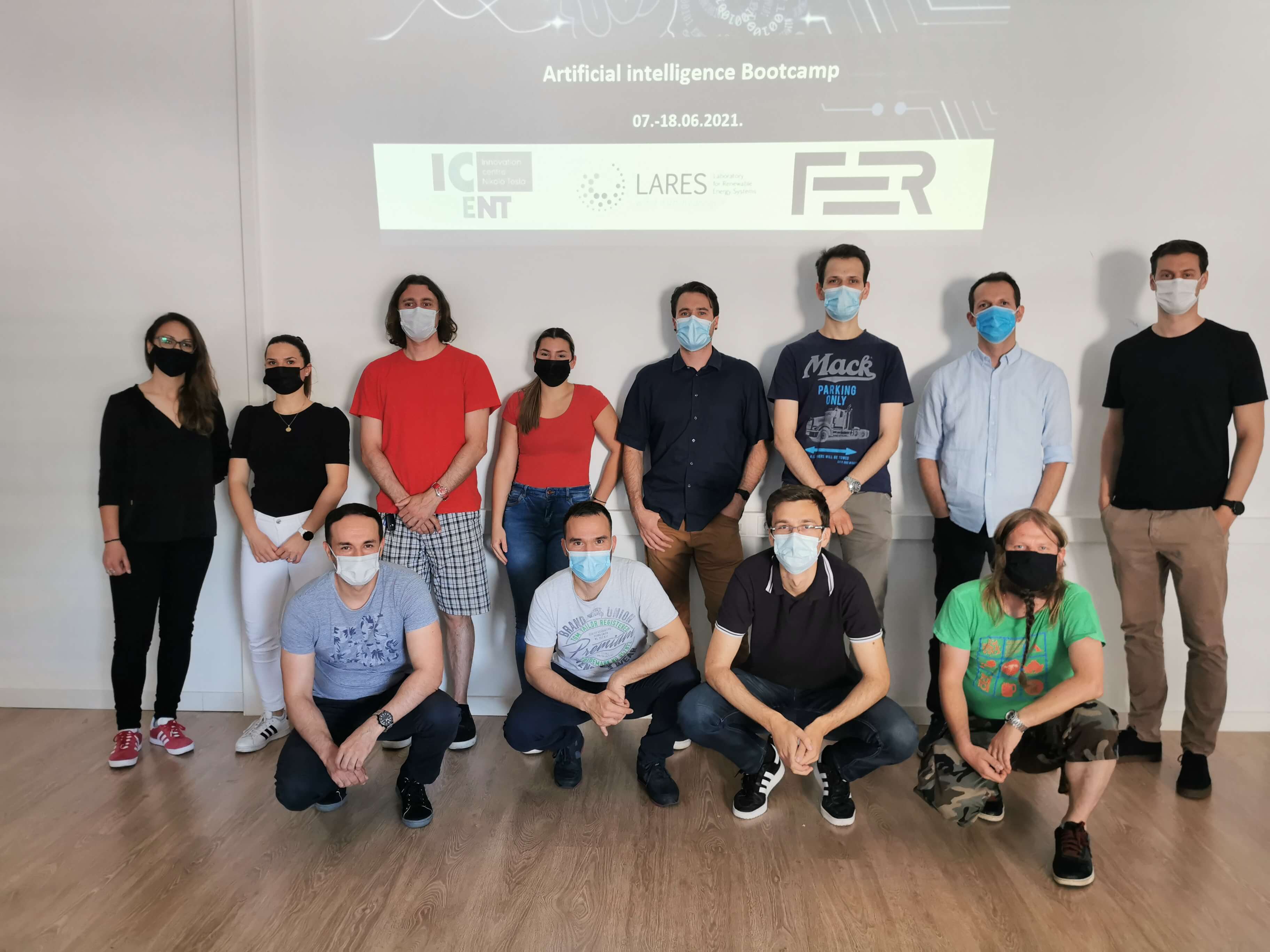
Want to learn more about Machine Learning and Artificial intelligence? Join AI Bootcamp organized by LARES at FER!
Following industry trends, LARES is turning in the direction of artificial intelligence and machine learning in the fields of energy management, logistics, transportation, agriculture, and more. Our experienced colleagues (Hrvoje Novak, Filip Rukavina, Slaven Begovic, Nikica Perić) hold an intensive, one-week course covering data processing, supervised learning, unsupervised learning, deep learning, ensemble learning, model selection and validation, real datasets and practical examples. So far we have successfully held two AI Bootcamps: to our research group and INTIS. "It was an excellent introduction to AI, with a lot of real-life examples and helpful tips. It was just a great experience for me and my team!" said Intis BI Team Lead about our course.
If you want to understand and learn more about AI and ML, or you see benefits from this course to your company, send an email to lares@fer.hr or to ivana.basljan@fer.hr. We can't wait to pass on the knowledge, because it's something we do best in FER! 😊
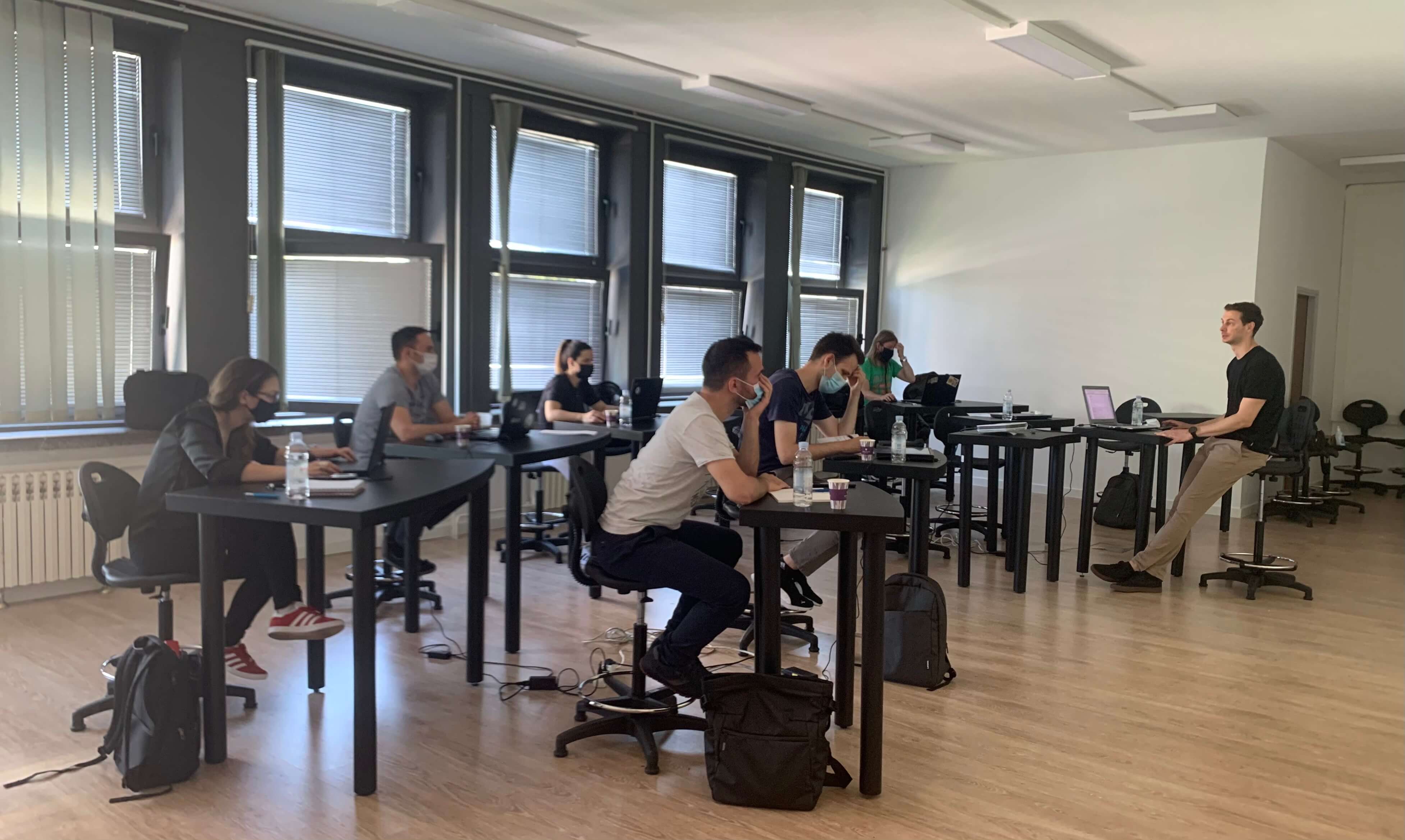
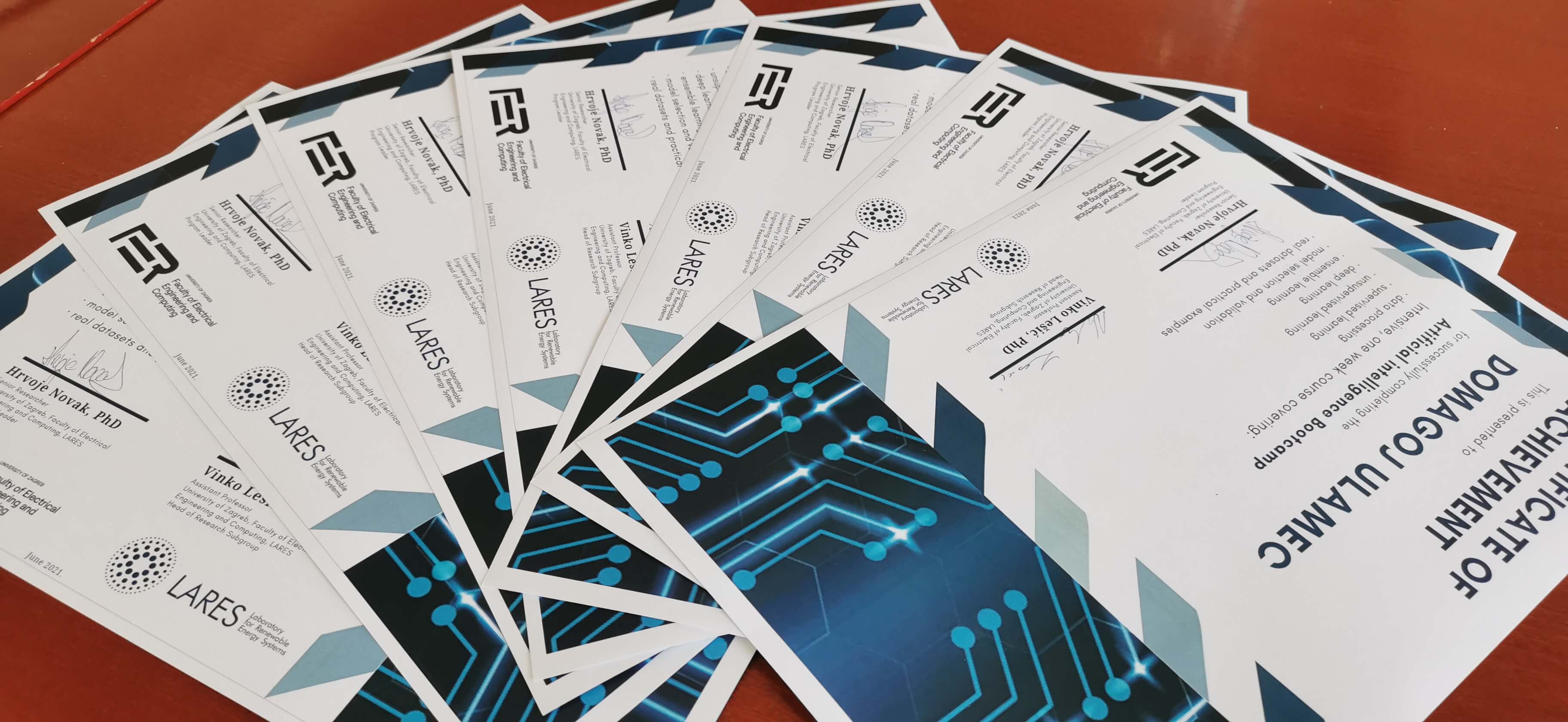
For those working in the sector of energy efficiency, we present the Optimal sizing calculator developed by LARES team within the project Store4HUC, financed trough the Interreg Central Europe programme. It is an in-depth tool for the advanced users like energy experts and others working in that field. Optimal parameterisation of photovaltaic and battery energy storage systems are supporting the customers to save costs and be more environmental friendly at the same time!
Photovoltaic (PV) systems are widespread renewable energy sources that can be installed at a variety of locations. Because of their sun dependence, they provide more than enough energy during the day, but no energy during the night. Since the prices of selling electrical energy to the utility grid are considerably lower than the prices of buying the energy, having a battery energy storage system (BESS) can ensure that the excess of energy is stored and used later. Not only does a PV system in a combination with a BESS reduce monthly electricity bill for a consumer, it equally contributes to the environmental protection in terms of reduced CO2 emissions.
To maximize the contributions while minimizing the price of the installations, the calculator finds the optimal sizes of a PV and a BESS for a site. Those sizes are peak power of the PV system, energy capacity and power converter rated power of the BESS. The calculator uses typical yearly consumption profiles of a variety of consumers, but if you have your own consumption profile recorded you can use it to calculate your optimal parameters more accurately.
You can download this valuable tool for free here and soon find out your optimal kWp-kW-kWh combination!
In this short video our researcher Filip Rukavina is explaining how to download the Optimal Sizing calculator, install it and get it started.
If you have problems with the tool, feel free to contact us under:
filip.rukavina@fer.hr; mario.vasak@fer.hr
PC 2021 – 23rd International Conference on Process Control took place on 1st - 4th June 2021 in Štrbské Pleso, Slovakia. Our LARES research team presented three papers:
Distributed Optimal Heating Control of Building Zones - F. Vrbanc and V. Lešić,
Prediction of User-defined Room Temperature Setpoints by LSTM Neural Networks - N. Perić, H. Novak, F. Rukavina and V. Lešić,
Worst-case optimal scheduling and real-time control of a microgrid offering active power reserve - M. Kovačević, B. Brkić, M. Vašak.
The papers can be found under the People tab, authors’ publication.
Within the framework of the project Store4HUC, co-funded by the European Union through the Interreg Central Europe programme, where LARES is involved, a public building in the municipality of Lendava was converted from fossil fuels to renewable energy. Symbolically, on World Earth Day, 22 April 2021, the Mayor of the Municipality of Lendava, Mr. Janez Magyar, handed over the pilot project in the field of renewable energy and its storage. At the handover of the modernized boiler room in the Lendava Library building, which will henceforth be heated by geothermal energy, the Mayor of Lendava highlighted the municipality's efforts to become recognizable as a green tourism destination: "With small steps, but persistently, we contribute to the carbon-free society, as we are aware of the importance of preserving nature and natural resources, so we decide to make the most of renewable energy sources." The pilot infrastructure is a latent heat storage system combined with geothermal energy. This will reduce energy costs, which will also have a positive impact on greenhouse gas emissions. The Municipality of Lendava is aware of its role and supports projects that have a positive impact on the environment. The project can also be a good example and encouragement both locally and in the wider environment.
The latent heat storage based on phase-change materials represents a challenge for energy management as its model is highly nonlinear. LARES contributes here with development of an energy management procedure based on mixed-logical-dynamical systems and predictive control that unlocks the full potential of such a storage system such that the operators of the plant can be advised how to improve the system performance for the one-day-ahead operation horizon. Careful planning almost fully eliminates the need for engagement of the oil-based backup system and thus enables a completely carbon-free heat supply of the library in Lendava.
The project "Development of a System for Predictive Control and Autonomous Trading of Energy in Buildings - PC-ATE Buildings'', co-financed by the European Regional Development Fund, deals with the problem of predictive control of energy consumption at the building level under comfort constraints and with autonomous trading of energy between buildings, in cooperation with our partners, Klimaoprema d.d. (KOER, the project Lead partner) and ICENT. We are glad that LARES contributes to the development of the Croatian economy through its projects, read how for this particular case at link.
As of beginning of 2021 LARES is involved in five new projects funded from the call Strengthening R&D and Innovation Potentials (STRIP) through the Operative Programme Competitiveness and Cohesion for Croatia in period 2014-2020. The STRIP call was launched by the Croatian Ministry of Science and Education and was highly competitive. Each of the projects is performed with one partner company.
These projects are:
The projects are co-funded by the European Union from the European Regional Development Fund. They will enable to open new chapters of research in LARES and contribute to boost the Croatian economy through new knowledge, skills and prototypes of competitve new products.
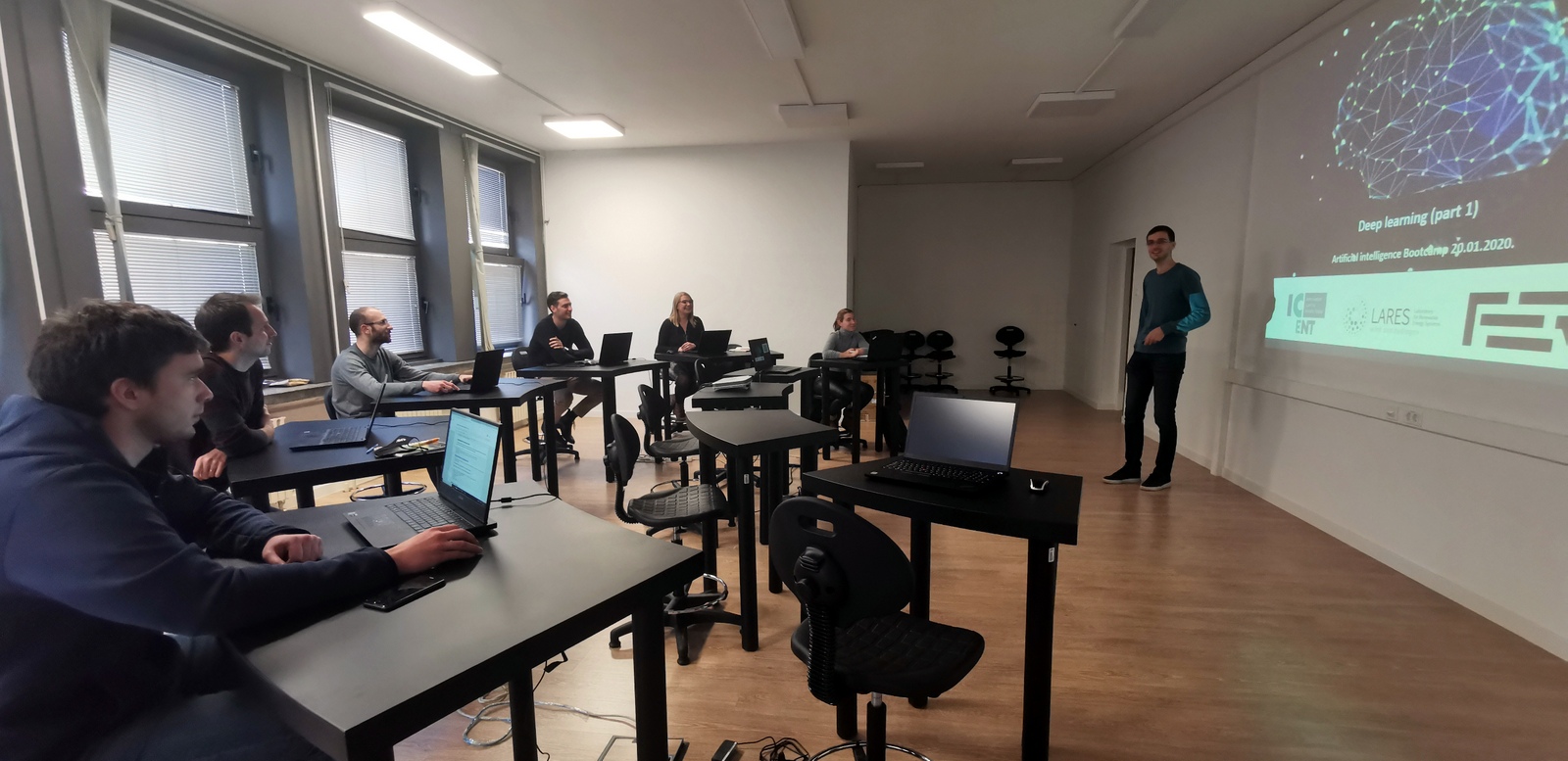
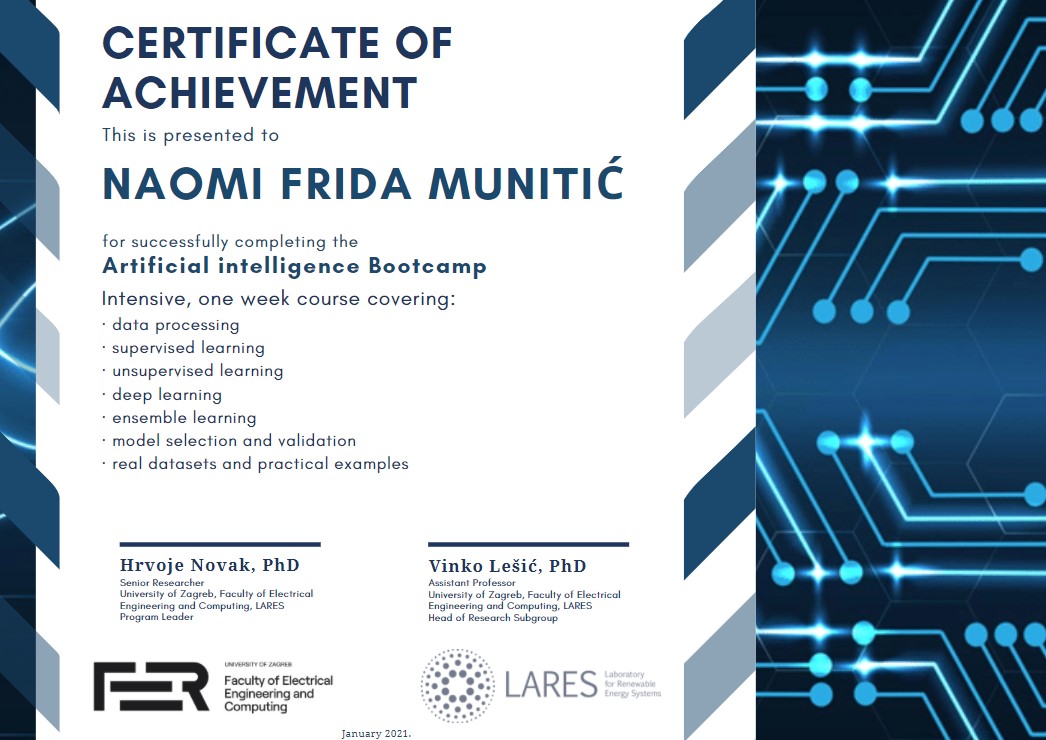
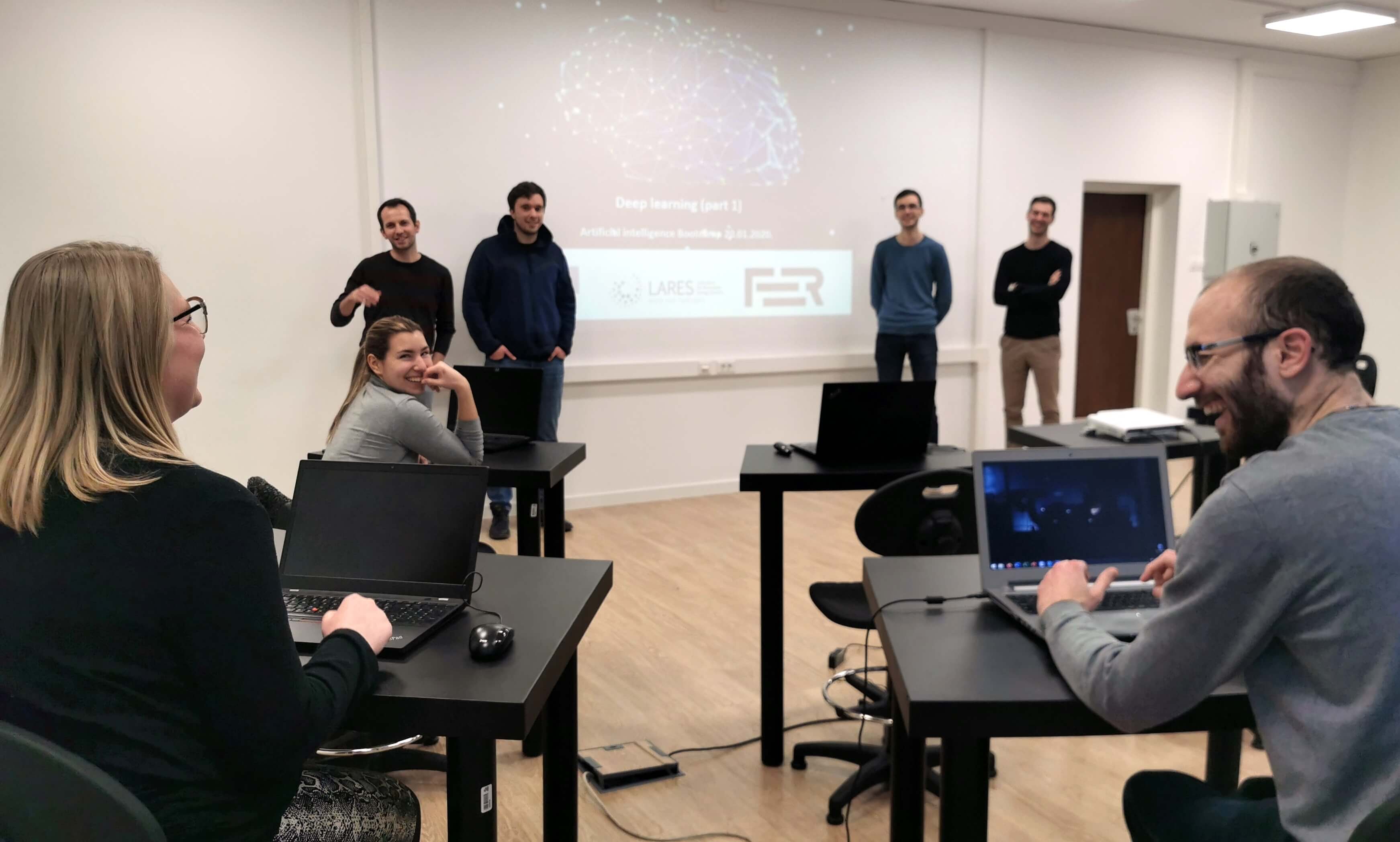
New online tool calculates savings through urban electric storage solutions developed in the course of the EU financed project Store4HUC, in whose project team LARES is involved
Up to 80% of total energy consumption in the EU is attributed to urban areas, including historical urban centres. At the same time, low carbon energy supplies in the form of energy storages, especially in historical urban centres, is a rarity in central Europe. This is mainly because of strict architectural protection constraints, higher implementation costs and often also conflicts with town planning policies. The Store4HUC project now offers the Autarky Rate Tool to address such conflicts. This easy-to-use online tool is available for everyone who considers installing electrical storage solutions in combination with renewable energy sources. With only a few numbers and clicks, you can get an evaluation of the technical, economic and ecological effects of a chosen combination. It is now possible for everyone who plans to change to renewable energy use and needs electrical storage to learn how self-sufficient the planned change will make them. The tool is freely accessible and available to all those interested in the installation of electrical storage in combination with renewable energy sources. The aim is to motivate the users to deal with the topic in more detail and subsequently to contribute to an increased and intelligent use of electric storage solutions and contribute to the reduction of carbon-based energy sources. The tool is available online via https://www.interreg-central.eu/Content.Node/news/2.html
On 26 November 2020 the Ambassador of the Republic of India H.E. Raj Kumar Srivastava visited the Faculty of Electrical Engineering and Computing. As part of the short representative tour through the faculty, he also visited LARES, where he was welcomed by members of the Laboratory in an small pandemic-aware setup.
.jpg)
.jpg)
The Ambassador was briefed with current research efforts of the Laboratory, starting with smart buildings control where more details and explanations on how we operate the UNIZGFER skyscrsaper building as a smart building was provided by Dr. Anita Banjac. We have also shown the laboratory set-up of wind turbine in operation under expert guidance of Dr. Nikola Hure. Other parts of the laboratory microgrid were shortly explained, too. Head of the laboratory Prof. Mario Vašak introduced the ambassador to a selection of projects in which the laboratory successfully participates followed with a discussion on industry-faculty cooperation. The visit ended with a panoramic view of Zagreb covered with fog.
.jpg)
.jpg)
As part of the 115th IEEE Region 8 Committee Meeting, held on November 14, 2020 (online), the Industry Applications Chapter of the IEEE Croatia Section was awarded The Region 8 Chapter of the Year Award in the category of small chapters within IEEE Region 8 consisting 69 sections and subsections in Europe, Africa and Middle East.
The award is given based on the activities of the chapter in 2019, Chaired by our Laboratory member Asst. Prof. Vinko Lešić, PhD, and vice president Assoc. Prof. Igor Erceg, PhD.
Congratulations to Vinko, Igor and all members of the IAS chapter who contributed to this great recognition with their work!
|
At the celebration of the Day of the Faculty of Electrical Engineering and Computing held on Friday, 20 November 2020 our Laboratory member Anita Banjac Ph.D. was awarded the “KONČAR” Annual Award for her doctoral dissertation. The thesis titled "Hierarchical model predictive control of temperature in building zones" showed exceptional research achievements suitable for industrial applications.
With now several LARES members being awarded for their dissertations, this continues the streak of awards started in 2015. Congratulations to Anita and her mentor prof. Mario Vašak! |
.jpg)
A new project in LARES "Innovative model to drive energy security and diversity in the Danube Region via combination of bioenergy with surplus renewable energy" (DanuP-2-Gas) started on 1st of July 2020. The main goal of the project is to advance transnational energy planning by promoting generation and storage strategies for renewables in the Danube Region. Ths is done through coupling the electric power, gas and biomass sectors. Within the project LARES focusses on the optimization tool for parametrization and operations planning of sectors coupling hubs that will aid in decision making when it comes to investing in such hubs and operating them in different parts of the Danube Region.
FER/LARES participates in the project as partner and the lead partner for the project is Technology Centre Energy -- University of Applied Sciences Landshut from Germany. The project is funded from European Regional Development Fund and IPA funds via Interreg Danube Transnational Programme.
More details about the project are provided in the detailed news content.
This September saw the launch of the European project Resilient Water Innovation for Smart Economy - REWAISE, within the Horizon 2020 research and innovation programme. The aim of REWAISE is to create a new “smart water ecosystem”, to result in a carbon free, sustainable hydrological cycle, in line with the concept of a resilient circular economy, recovering energy, nutrients and materials from water.
To embrace this concept and emphasize the true value of water, the project develops an intelligent digital platform for decentralized solutions and decision making, involving all relevant stakeholders within Living Labs to share best practices and facilitate co-creation.
University of Zagreb Faculty of Electrical Engineering and Computing is through its Laboratory for Renewable Energy Systems heavily involved in REWAISE developments during 5 years of its run. FER/LARES will develop optimal control procedures for plants and systems in the water cycle -- freshwater preparation plants, water distribution systems, sewage collection system and wastewater treatment plants -- to ensure they operate at their socio-economical optimum. It will then also develop procedures for coordination between independent plants and systems in the water cycle based on supply-demand economical mechanisms to further reduce its overall socio-economical cost and environmental footprint. The developed optimal control and coordination procedures will be implemented and tested in water cycles of Mediterranean, Atlantic and Continental hubs of REWAISE living labs.
Together with many research positions with regards to a considerable number of new research projects grants, we also have different non-research, administrative staff positions.
Currently open positions can be found in our Open positions tab.
|
This summer and autumn LARES starts the execution of a considerable number of research projects and we have open different research positions, for those who will soon graduate, who have just graduated, and for those who already have research or an engineering work experience.
Currently open positions can be found in our Open positions tab.
|
|
|
On May 15th, 2020 LARES researcher Anita Martinčević successfully defended her doctoral dissertation and received a Doctor of Science degree in Electrical Engineering. Anita’s thesis was entitled "Hierarchical model predictive control of temperature in building zones". Developed control algorithms have been validated and put into operation on the 9th floor of the faculty skyscraper building and are being extended to include all 12 floors within the building.
The thesis defense was held online with the presentation video available on our Youtube channel. |

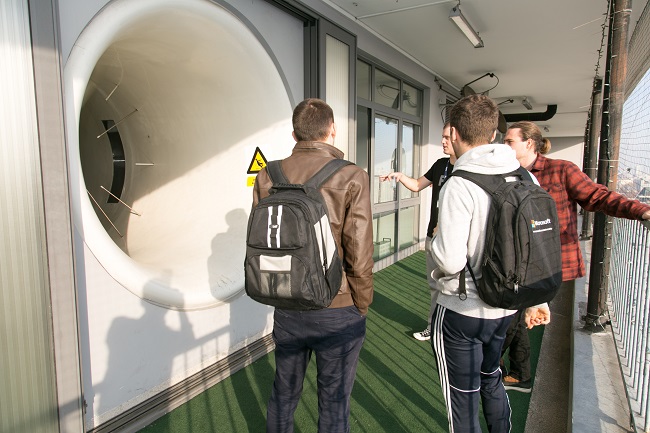
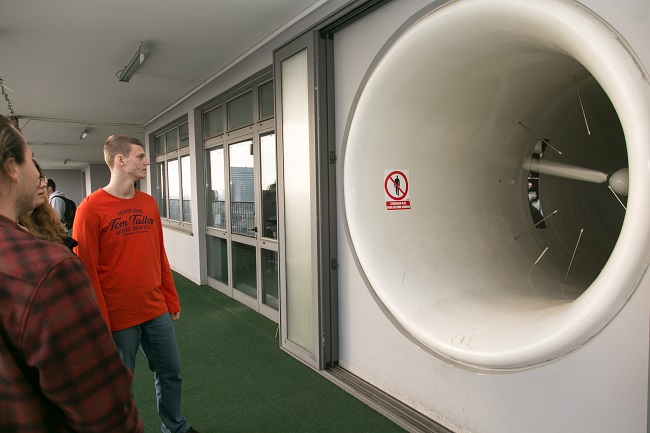
|
At the celebration of the Day of the Faculty of Electrical Engineering and Computing held on Friday, 22 November 2019 our head of Laboratory prof. Mario Vašak Ph.D. and Hrvoje Novak Ph.D. received awards for their scientific work. Mario Vašak received the Annual Award of the University of Zagreb Faculty of Electrical Engineering and Computing for his scientific achievements over the last 5 years while Hrvoje Novak was awarded the “KONČAR” Annual Award for the doctoral dissertation with exceptional research achievements suitable for industrial applications. |
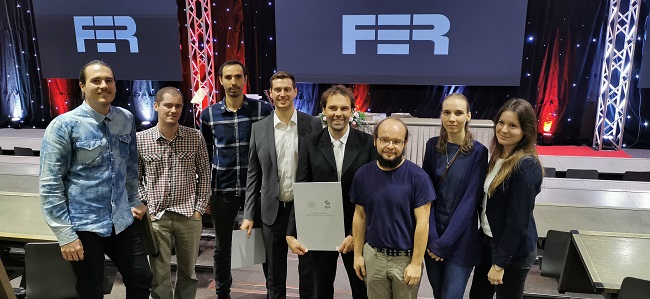
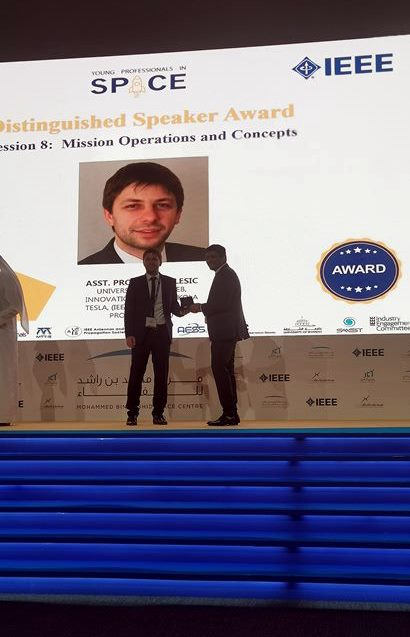 |
We are proud to share that our Laboratory member asst. prof. Vinko Lešić presented the advances of generator fault tolerant control and the possibilities the developed approach opens in the space industry on Young Professionals in Space conference in Dubai. Young Professionals in Space is an initiative to bring scientists, practitioners, engineers and leaders of space industry and agencies together in a single platform to discuss recent research breakthroughs, technical advances, existing opportunities and emerging space technologies. |
|
|
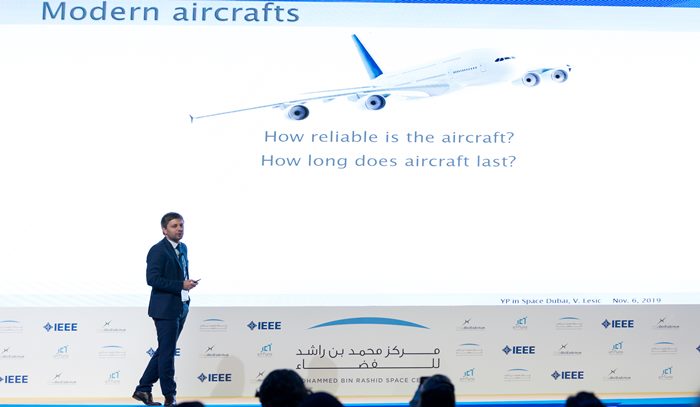 |
|
Our LARES research team published an article "Identification of a control-oriented energy model for a system of fan coil units" - A. Martinčević, M. Vašak, V. Lešić in Control Engineering Practice, a prestigious scientific journal. The introduced simple and accurate dynamic characterization of energy transmitted from a fan coil units to zone air fills the gap between thermal and energy management for buildings, enables implementation of predictive building controls and unleashes significant energy and cost-saving potentials of a smart building in a smart city.
You can download the article preprint here or take a look at it on the Journal web |
A new project in LARES ''Integration and smart management of energy storages at historical urban sites“ (STORE4HUC) started on the 1st of April 2019. The main goal of the project is to improve territorially based low-carbon energy planning strategies. It will enrich policies that support climate change mitigation in historical city centres by focusing on improved urban and spatial planning for integrating energy storage systems to enhance the public institutional and utility capabilities. The partners will develop policy recommendations and identify suitable integrated technological solutions to overcome low carbon development barriers in historic centres. They will also facilitate the development of open energy and load management systems for energy efficiency and use of renewables. With its concepts and pilot systems, STORE4HUC will provide smart city test beds in four countires (Croatia, Slovenia, Austria, Italia), where technical issues will be reconciled with historical and architectural values.
The project partners are: Development agency Sinergija (Lead Partner), Municipality Lendava, Energy and Innovation Centre of Weiz, 4ward Energy Research Ltd, CES clean energy solution GmbH, Environment Park, City of Cuneo, North-West Croatia Regional Energy Agency, University of Zagreb Faculty of Electrical Engineering and Computing and Climate Alliance. The project associated partners are: Croatian Association of Historic Towns, CRC bank foundation, City of Maribor, Climate and Energy modelregion – climate friendly naturepark Almenland, Biomasse district heating Weizberg, Krapina-Zagorje County
LARES will inherit the energy management software developed within the 3Smart project and adapt it for management of energy storages on the planned pilot sites.
The project is co-funded by the European Union through the Interreg Central Europe programme.
|
We are glad to announce our partnership with Techne Summit, the international entrepreneurship technology conference that is being held in Dubrovnik this year May 3-4 bringing together renowned global players in the technology industry from different countries.
Carrying the slogan of TECHNOLOGY – INNOVATION - TALENT on which the event concept is built, the two-day summit acts as a platform for these international global players to share experiences, wisdom, observations, predictions and opportunities. |
|
One of the speakers of this year’s summit is Anita Martinčević who will present the modular platform for the energy management on building and distribution grid developed by our laboratory and currently running on our Faculty skyscraper building. If you are interested in attending use this discount code for a 20% off your tickets! (TSDBV20OFF) To know more about Techne Summit you can visit the website here. |
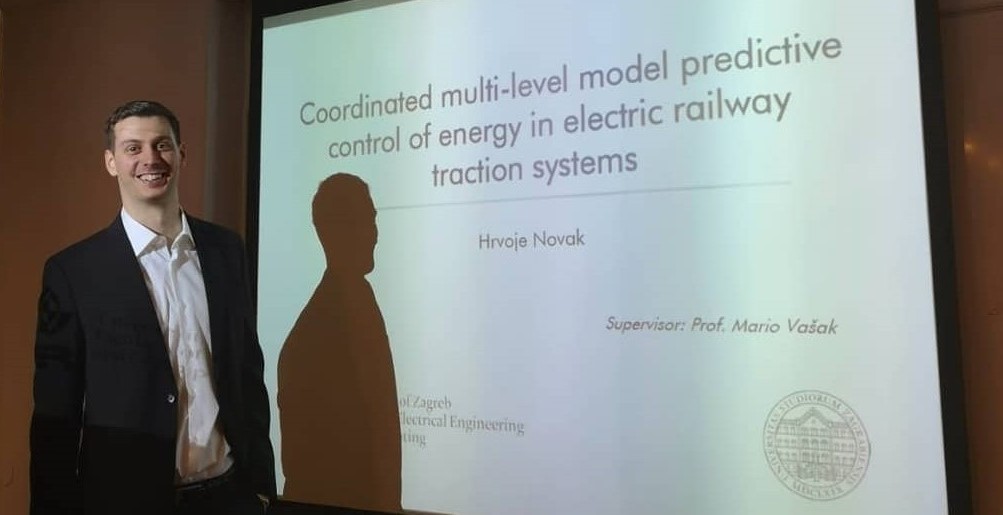 |
On January 30th, 2019 LARES researcher Hrvoje Novak successfully defended his doctoral dissertation and received a Doctor of Science degree in Electrical Engineering. Hrvoje’s thesis was entitled "Coordinated multi-level model predictive control of energy in electric railway traction systems". Hrvoje is continuing his work within LARES, on conceptually similar projects 3Smart and PC-ATE Buildings. |
|
Our LARES research team published an article "Hierarchical Model Predictive Control for Coordinated Electric Railway Traction System Energy Management" - H. Novak, V. Lešić, M. Vašak, in IEEE Transactions on Intelligent Transportation Systems, a prestigious IEEE scientific journal. The paper is published within a Special Issue on Intelligent Rail Transportation, focussed on development and application of intelligent technologies for improvement of railway's autonomy, cooperation and integration. The paper presents a novel railway energy management system based on hierarchical coordination of electric traction substation energy flows and on-route trains energy consumption levels. The levels are coordinated through parametric hierarchical model predictive control with the main goal of additionally increasing the energy efficiency and decreasing the operational costs of the overall system. You can download the article preprint here or take a look at it on the Journal web. |
|
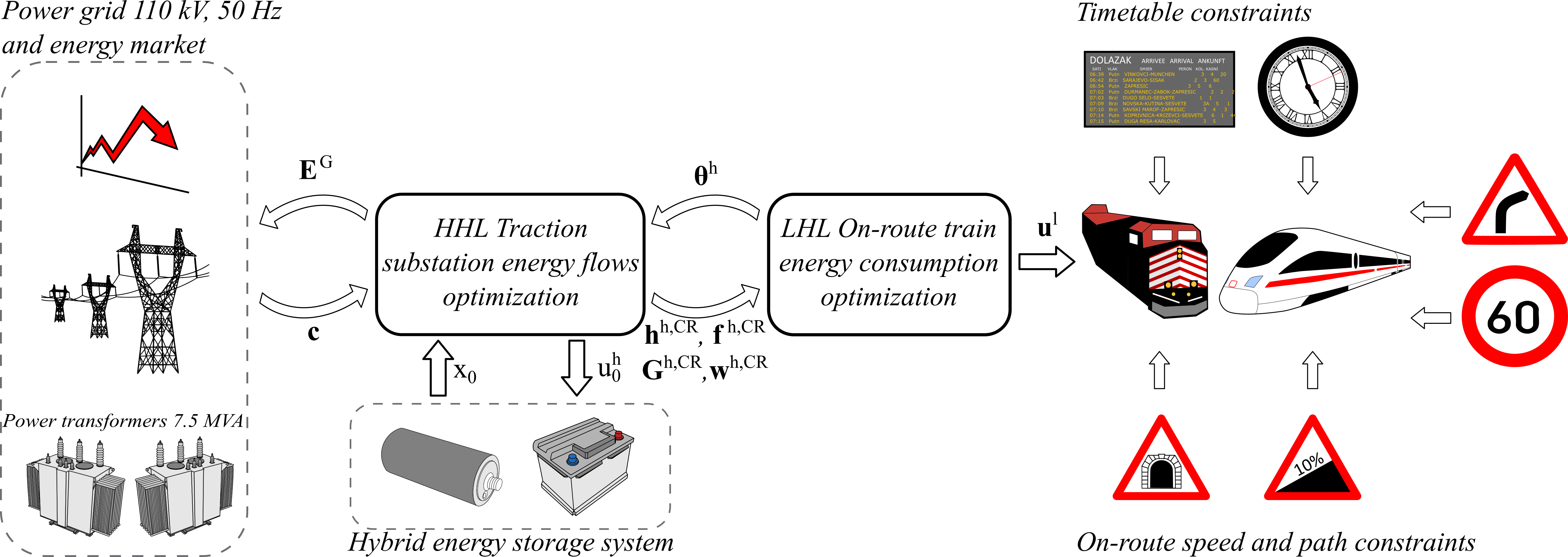
On today's assembly of the council of University of Zagreb Faculty of Electrical Engineering and Computing LARES has been installed officially as one of the research laboratories of the Faculty.
As during the inofficial existence of LARES for the past 11 years, we will continue our devotion to quality research of smart controls in energy systems.
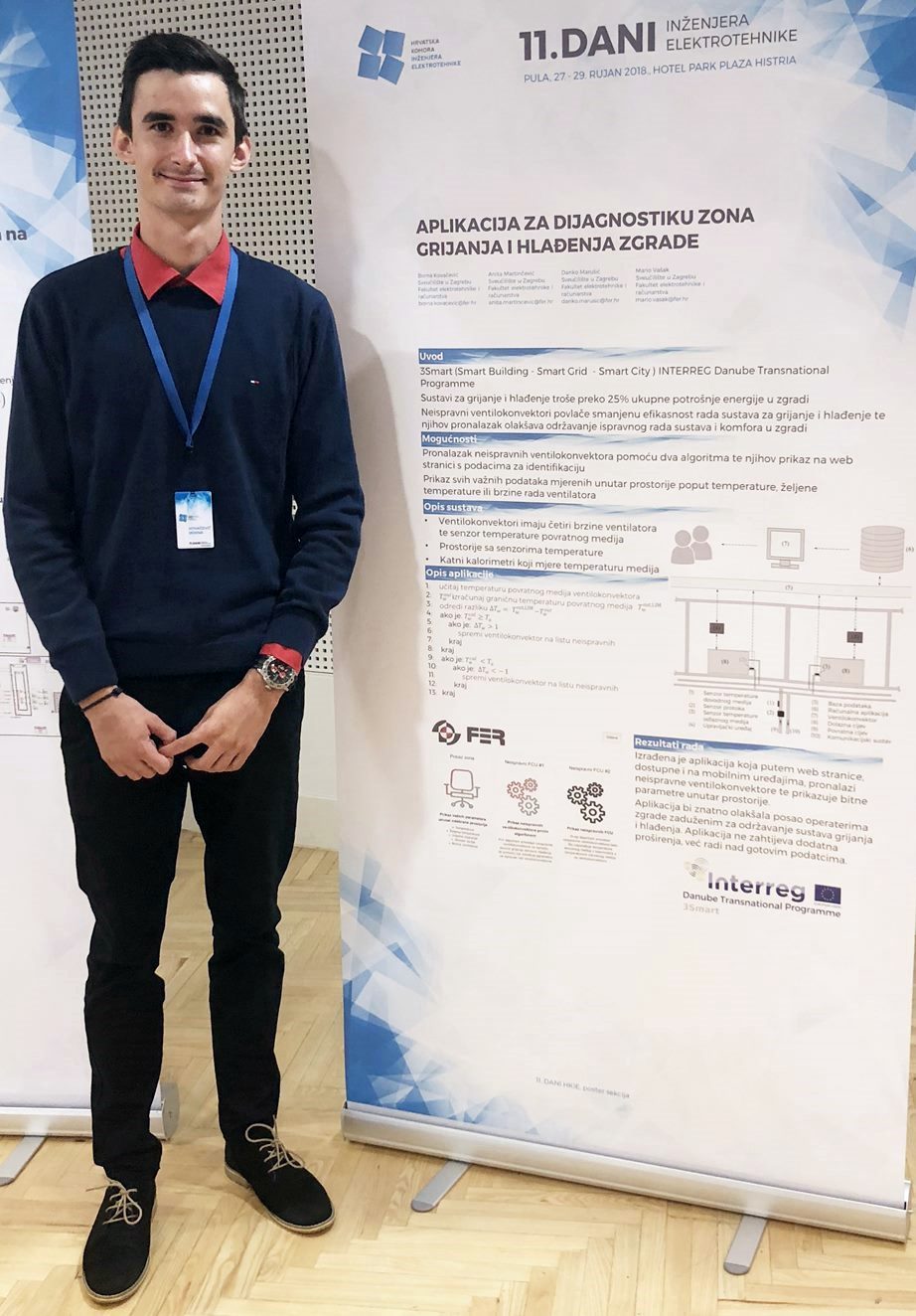 |
Our student Borna Kovačević presented his work titled ''Design of application for display of states and diagnostics for heating and cooling zones of a building’’ on 11th Electrical engineering days organized by Croatian chamber of electrical engineers. The conference took place in Pula, Croatia from 27th-29th September 2018. The purpose of the developed application is to assist the building operators responsible for the proper operation of the heating and cooling system by displaying defective fan coil devices on a simple web interface. |
|
|
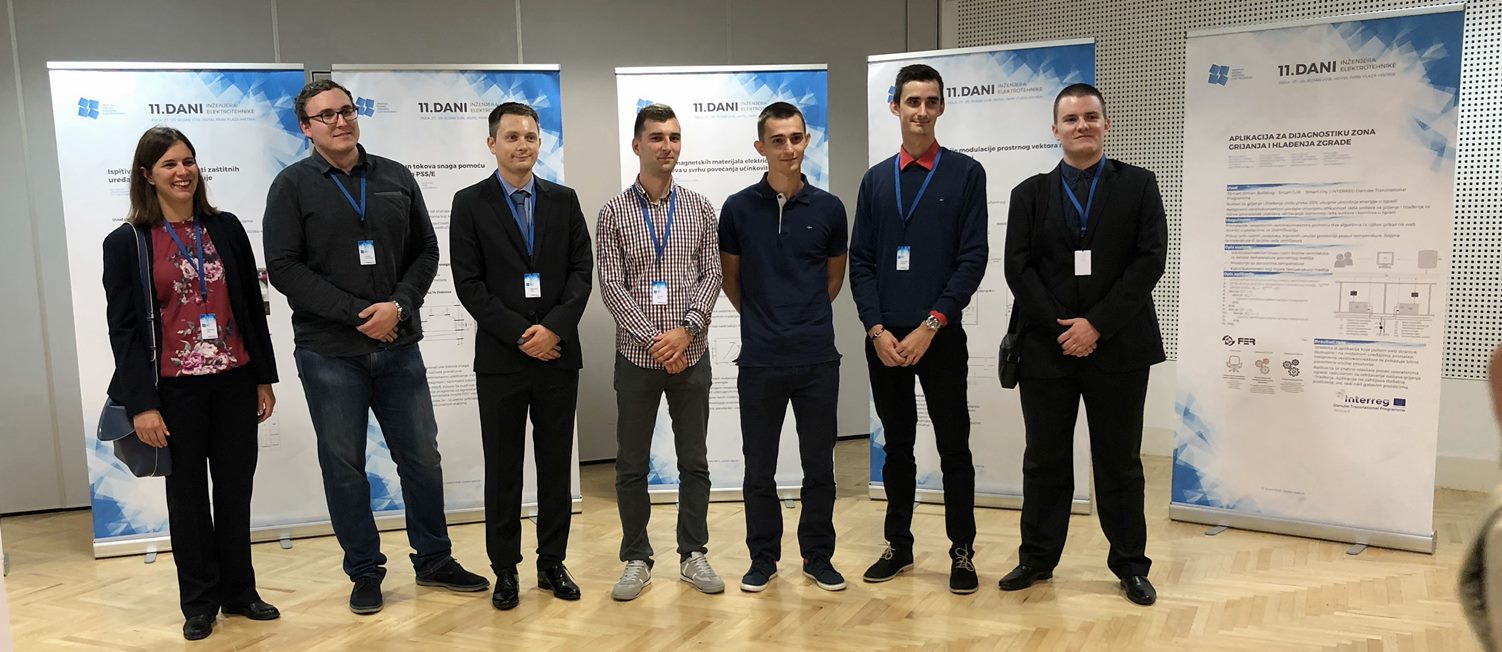 |
| The activity of our research group was presented on national TV scientific show "Prometej". By presenting activities and results of our research team in the areas of smart and sustainable buildings and transport, as crucial pieces for forming smart cities, it is shown that our laboratory keeps up with the leading research groups in the same areas. One of the largest steps forward is the 3Smart project coordinated by prof. Mario Vašak through which the entire Faculty’s skyscraper building (13 floors, over 200 rooms) is going to be transformed into a smart building with an ability to actively participate on the energy market. |
A recorded LARES tour of Energy Days at FER, led by our researcher Anita Martinčević, MSc, was aired during the TV show "RTL Direkt" as part of the feature story about the growing interest in STEM area among the pupils of Croatian high schools. Few photos can be found in the detailed news content.
|
Energy Days at FER, as part of the Zargeb Energy Week, were celebrated in LARES on May 7, 2018. Through 4 laboratory tours, students and other interested participants had opportunity to witness the presentation of renewable energy systems, demonstrations of equipment and scientific trends of control in energy efficient buildings. An article about the event was published in weekly newspapers LIDER, published here. We thank the organizers for their initiative.
|
| On April 26th, 2018 LARES researcher Branimir Novoselnik successfully defended his doctoral dissertation and received a Doctor of Science degree in Electrical Engineering. Branimir’s thesis was entitled "Optimal coordinated and robust control of electrical power distribution system". From May 1st, 2018 Branimir will be on a 4 months visit to the System Control and Optimization Laboratory (Lehrstuhl Systemtheorie, Regelungstechnik und Optimierung) led by Prof. Dr. Moritz Diehl at the Department of Microsystems Engineering (IMTEK) of the University of Freiburg, Germany. | 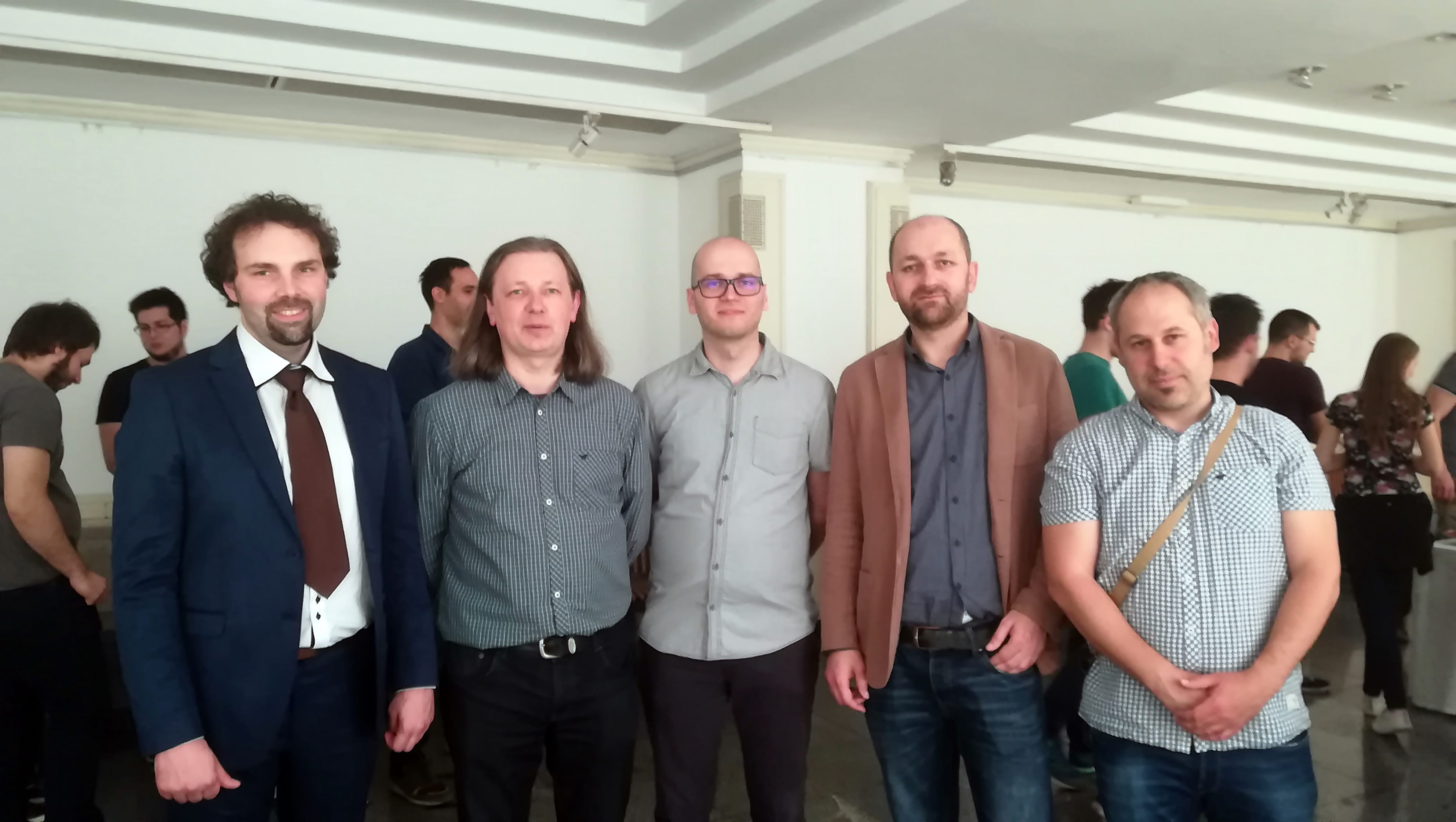 |

|
Virtual tour of the LARES laboratory is now online. 360° pictures from the skyscraper roof and LARES equipment are accompanied with a live camera image from the wind turbine tunnel. Enjoy the view.
LARES team |
|
Our LARES research team published an article "A Battery Management System for Efficient Adherence to Energy Exchange Commands under Longevity Constraints" - M. Vašak, G. Kujundžić in IEEE Transactions on Industry Applications, a prestigious IEEE scientific journal focussed on advancement of theory and practice of electrical and electronic engineering and application of electrical systems. The article presents a new method for energy management of energy storages in microgrids that resides on model predictive control and ensures energy exchange between the storage and the rest of the microgrid is performed in exactly the commanded amount within the given time, all while taking into account the storage longevity constraints and ensuring maximum storage system efficiency.
You can download the article preprint here or take a look at it on the Journal web. |
 |
|
On 23rd of November 2017 a successful public defence of the PhD thesis entitled "Set-theoretic control of a wind turbine" was held by the LARES group member, Nikola Hure. The defence was attended by the faculty colleagues, researchers and professors, whereas the thesis defence committee was composed of prof. Nedjeljko Perić, prof. Mato Baotić (Faculty of Electrical Engineering and Computing) and prof. Zdenko Tonković (Faculty of Mechanical Engineering and Naval Architecture) from the University of Zagreb. Dissertation will soon be available online.
|
|
Head of our laboratory, prof. Mario Vašak will hold a lecture titled "Control-based Hierarchical Consolidation of Large Consumers for Integration in Smart Grids" on November 13th, 2017 at the Croatian Academy of Sciences and Arts.
During the lecture, methodology, results and future research plans of our currently ongoing 3CON project, will be presented. Fellow researchers and others interested are invited to attend the lecture.
Invitation and lecture outline (in Croatian) can be found here.
In June 2017 article Kujundžić, Vašak: Closed-loop predictive control for adherence to the commanded energy exchange with a VRLA battery was presented at the 10th International Conference on Lead-Acid Batteries in Golden Sands, Bulgaria.
|
Goran Kujundžić successfully defended his PhD thesis "Estimation and predictive control of a battery in a microgrid" on 27 October 2017. Recently, Goran published an article entitled "Optimal charging of valve-regulated lead-acid batteries based on model predictive control" in a prestigious scientific journal Applied Energy. The preprint of the article can be downloaded from here or you can look at it on the journal web.
|
|
|
|
SST 2017 – the International Conference on Smart Systems and Technologies took place in Osijek, Croatia from 18th – 20th October 2017.
Within the conference session Smart Power Systems, LARES research team presented a paper titled: Upgrade of a typical office building automation system for enabling open energy management services – M. Vašak, A. Starčić, V. Lešić and A. Martinčević. The session was also co-chaired by LARES head Mario Vašak.
Full paper can be found under the People tab, authors' publications.
|
|
ITSC 2017– the IEEE 20th International Conference on Intelligent Transportation Systems took place in Yokohama, Japan from 16th - 19th October 2017.
Within the conference session Traffic management, LARES research team presented a paper titled: Hierarchical Coordination of Trains and Traction Substation Storages for Energy Cost Optimization - H. Novak, M. Vašak, and V. Lešić. The Traffic management session was also chaired by LARES member Vinko Lešić. Full paper can be found under the People tab, authors' publications. |
|
|
|
|
|
The 19th International Conference on Electrical Drives and Power Electronics took place on 4th-6th October 2017 in Dubrovnik, Croatia. Our LARES research team presented two papers:
Papers can be found under the People tab, authors' publication. |
|
|
|
|
Our Fault-tolerant control technology and collaboration with United Technologies Research Center (UTRC) published in one of the main Croatian daily newspapers, Jutarnji list. The article is about the methodology initially developed for wind turbine generators, now applied to aerospace industry. Here you can check the article in Croatian.
|
|
|
The 20th World Congress of the International Federation of Automatic Control took place from 9th to 14th of July 2017 in Toulouse, France. Our LARES research team presented two papers:
- Electrical Power Distribution System Reconfiguration: Case Study of a Real-Life Grid in Croatia, B. Novoselnik, M. Bolfek, M. Bošković, M. Baotić;
- On Operating Envelope Protection Design for Nonlinear Discrete-Time Systems, N. Hure, M. Vašak.
Papers can be found under the People tab, authors’ publication.
LARES researcher Branimir Novoselnik will be visiting the Systems Control and Optimization Laboratory (Lehrstuhl Systemtheorie, Regelungstechnik und Optimierung) led by Prof. Dr. Moritz Diehl at the Department of Microsystems Engineering (IMTEK) of the University of Freiburg, Germany, for three months, between October 1st and December 31st, 2017.
Aim of this stay is to conduct research in the area of algorithms for numerical optimal control and embedded optimization with application to renewable energy systems, and to contribute to the development of open-source software for embedded nonlinear optimal control.
ACC 2017 – the American Control Conference took place on May 24 - 26, 2017 in Seattle, WA, USA. Our LARES research team presented the following paper:
Robust Microgrid Control Using Tube Scaling Approach - N. Branimir, J. Matuško, M. Baotić.
The paper can be found under the People tab, authors’ publication.
The 26th IEEE International Symposium on Industrial Electronics took place on 19th-21st June 2017 in Edinburgh, Scotland. Our LARES research team presented a paper titled: Comfort Control in Buildings with Adherence to the Required Thermal Energy Input in Zones – A. Martinčević, F. Rukavina, V. Lešić, M. Vašak. The paper can be found under the People tab, authors’ publication.
PC 2017 – the 21st International Conference on Process Control took place on 6th - 9th June 2017 in Štrbské Pleso, The High Tatras, Slovakia. Our LARES research team presented two papers:
Nonlinear Hierarchical Building Zone and Microgrid Control based on Sensitivity Analysis - V. Lešić, M. Vašak, A. Martinčević and H. Novak,
Clustering-based Identification of MIMO Piecewise Affine Systems - N. Hure and M. Vašak.
The papers can be found under the People tab, authors’ publication.
LARES laboratory presented its activities on TEDx event held in Zagreb under the motto BUILD.FUTURE.NOW. The main activities of the laboratory within the area of smart building, smart grid and smart cities were presented to the public, with the focus put on currently ongoing 3Smart and 3CON projects and results of the ENHEMS-Buildings project finished in 2015.
Our LARES team published an article "Modular energy cost optimization for buildings with integrated microgrid" in Applied Energy, a prestigious scientific journal focussed on energy topics. It introduces and elaborates the modular energy management in buildings developed in 3CON and further pursued in 3Smart project, and presents its performance analysis through a case study performed on a part of the skyscraper building of the Faculty which is one of the 3Smart pilot buildings in Zagreb. You can download the article preprint here or take a look at it on the journal web.
On Friday, March 3, 2017, LARES was visited by a delagation from Japaneese Informatics Society, consisted of several professors from different universities and technical institutes who were given a presentation about implementation of different mathematical and optimization algorithms to embedded controllers in renewable energy sources domain. We thank our honorable guests for their visit.
Few photos can be found in detailed news content.
On 16th January 2017 a public presentation of the 3Smart project was held in Zagreb on the premises of University of Zagreb Faculty of Electrical Engineering and Computing who is the lead partner on the project. The event attracted a significant number of participants from different sectors representing government, industry and academia. The project 3Smart is funded by the European Union through the Interreg Danube Transnational Programme.
A new project in LARES ''Smart Building - Smart Grid - Smart City" (3Smart) started on the 1st of January 2017. The main goal of the project is to provide a technological and legislative setup for cross-spanning energy management of buildings, energy grids and major city infrastructures in the Danube region. This includes the development of a modular platform for coordinated building and distribution grid energy management. The developed platform will be installed on 5 pilot locations in 5 countries (Croatia, Slovenia, Austria, Hungary and Bosnia and Herzegovina) and comprehensive cost-benefit analysis will be performed to verify the platform’s performance. Our faculty is the Lead Partner on the project and in its execution participate Laboratory for Renewable Energy Systems (focussed on the buildings side) and Smart Grid Laboratory (focussed on the grid side).
The project partners are: Hrvatska elektroprivreda d.d., E3 ENERGETIKA, EKOLOGIJA, EKONOMIJA d.o.o., Municipality Idrija, Elektro Primorska d.d., European Centre for Renewable Energy Güssing Ltd., Municipality of Strem, Energy Güssing Ltd., University of Debrecen, E.ON Tiszántúli Áramhálózati Zrt., University of Belgrade Faculty of Mechanical Engineering, JP Elektroprivreda Hrvatske Zajednice Herceg Bosne, University of Mostar Faculty of Mechanical Engineering and Computing.
Associated strategic partners participating in the project are: Croatian Energy Regulatory Agency, Jožef Stefan Institute, Goriška Local Energy Agency, Regulatory Commission for Energy in Federation of Bosnia and Herzegovina, and Hungarian Energy and Public Utility Regulatory Authority.
The project is funded by the European Union through the Interreg Danube Transnational Programme.
IEEE PEMC 2016 – 17th International Conference on Power Electronics and Motion Control, took place on 25th - 30th September 2016 in Varna, Bulgaria.
Our LARES research team presented a paper titled: Comparison of Battery Management Approaches for Energy Flow Optimization in Microgrids - M. Vašak and G. Kujundžić. Paper can be found under the People tab, authors' publications.
IECON2016 – the 42nd Annual Conference of IEEE Industrial Electronics Society, took place on 24th - 27th October 2016 in Florence, Italy.
Our LARES research team presented a paper titled: Predictive control for heating power variance and peak reduction in buildings - A. Starčić , V. Lešić and M. Vašak. Paper can be found under the People tab, authors' publications.
ISGT 2016 Europe – IEEE PES Innovative Smart Grid Technologies, Europe, took place on 9th - 12th October 2016 in Ljubljana, Slovenia. Our LARES research team presented a paper titled: Multi-level Optimal Control of a Microgrid-supplied Cooling System in a Building - M. Gulin, A. Martinčević, V. Lešić and M. Vašak. Paper can be found under the People tab, authors' publications.
The final project Industrial Advisory Board and plenary meeting took place in Ludwigshafen, Germany, on the 13th and 14th September 2016, at the premises of industrial partner BASF. The objective of the meeting was to present the final results of the project to the Industrial Advisory Board. The feedback from the industrial experts was very positive and even enthusiastic about the achievements and results developed within the project, which is an excellent sign before the final meeting with the reviewers and evaluators of the project.
LARES members M. Baotić and B. Novoselnik attended the meeting and presented the work done within the DYMASOS project at the University of Zagreb, Faculty of Electrical Engineering and Computing.
ICIRT 2016– the 2016 IEEE International Conference on Intelligent Rail Transportation took place at the University of Birmingham from 23-25th August 2016.
Within the conference session Power and Traction, LARES research team presented a paper titled: Hierarchical Energy Management of Multi-Train Railway Transport System With Energy Storages - H. Novak, M. Vašak, and V. Lešić. Full paper can be found under the People tab, authors' publications.
With the help of Croatian Meteorological and Hydrological Service (DHMZ) LARES has recently finished periodic calibration of all its solar irradiance measurement equipment, including also the rather demanding calibration of direct solar irradiance measurement unit -- CHP1 pyrheliometer. More info on this can be found here and in the detailed news content.
Project POC-DAWN – Proof of Concept for Damping Generator Vibrations and Large Wind Turbine Noise by Advanced Power Converter Control (coordinator Vinko Lešić) has been granted by HAMAG-BICRO. With duration 1.6.2016. – 30.5.2017. and budget of 400.000,00 kn, the project aims at prototyping the advanced power converter control approach for generator vibrations and noise reduction in wind turbines. More information about the project scope can be found under the Projects tab.
MED 2016 – the 24th Mediterranean Conference on Control and Automation took place on 21st - 24th June 2016 in Athens, Greece. Our LARES research team presented a paper titled: Model Predictive Control for Energy-saving and Comfortable Temperature Control in Buildings - A. Martinčević, M. Vašak and V. Lešić. Paper can be found under the People tab, authors' publications.
On Monday, April 11, 2016, as part of series of workshops within the research project "JOBSTEM - professional aspirations towards STEM professions during elementary school education", elementary school students visited LARES together with their teachers and had a chance to see the our research involvement in the area of renewable energy systems. The project JOBSTEM is financed by Croatian science foundation.
Few photos can be found in detailed news content.
On January 26th, Croatian radio station, Radio Sljeme broadcasted an interview with 3Smart project coordinator dr. sc. Mario Vašak within their science show ''Iz svijeta znanosti''. Dr. sc. Mario Vašak hosted the show at the Faculty of Electrical Engineering and Computing to present the main objectives of the 3Smart project and to familiarize the listeners with the 3Smart concept as well as with the importance of the whole energy sustainability concept. An audio recording of the show can be reproduced by clicking on the following link: Audio
On 16th January 2017 a public presentation of the 3Smart project was held in Zagreb on the premises of University of Zagreb Faculty of Electrical Engineering and Computing who is the lead partner on the project. The event attracted a significant number of participants from different sectors representing government, industry and academia. The project 3Smart is funded by the European Union through the Interreg Danube Transnational Programme.
| On January 17th, Jutarnji list, Croatian daily newspaper published an article about project 3Smart (Smart Building - Smart Grid - Smart City where the University of Zagreb Faculty of Electrical Engineering and Computing is the lead partner. The article highlights the importance of such a project recognizing the need for sustainable, reliable solutions for the transmission, distribution and use of energy resources and the role of the Innovation Centre Nikola Tesla in this and future projects. The article can be found here. |
|
On January 2nd, Jutarnji list, Croatian daily newspaper published an article about 10 Croatian innovators. Among them is head of our Laboratory and coordinator of our newest project 3Smart (Smart Building - Smart Grid - Smart City) started with the beginning of the new year, Assoc. Prof. Mario Vašak. 3Smart project is recognized as one of the most promising enablers of the future smart cities and a step forward in making Zagreb a smart city. The article highlights the importance of such a project and the role of the Innovation Centre Nikola Tesla in this and future projects. The article can be reached through the following link: link.
| ENHEMS-Buildings action was presented on Croatian National Television within the Eko zona show. Eko zona is a weekly TV show on ecology, sustainable development, renewable energy sources, energy savings and environmental protection. One of the objectives of the show is through review of the difficulties and problems, but also positive examples, make viewers familiar with the use of renewable energy sources and care about energy efficiency. The show was broadcasted on 11th November 2015. The related show part be reached through the link next to the text. |
| ENHEMS-Buildings action was presented on Croatian National Television within the Eko zona show. Eko zona is a weekly TV show on ecology, sustainable development, renewable energy sources, energy savings and environmental protection. One of the objectives of the show is through review of the difficulties and problems, but also positive examples, make viewers familiar with the use of renewable energy sources and care about energy efficiency. Action ENHEMS-Buildings is recognized as one of the examples of how to improve the energy efficiency of one the world’s biggest energy consumers - buildings, through the use of advanced control algorithms and consolidation between industry and science. The show was broadcasted on 3th December 2014. The related show part can be reached through the link next to the text. | View on YouTube |